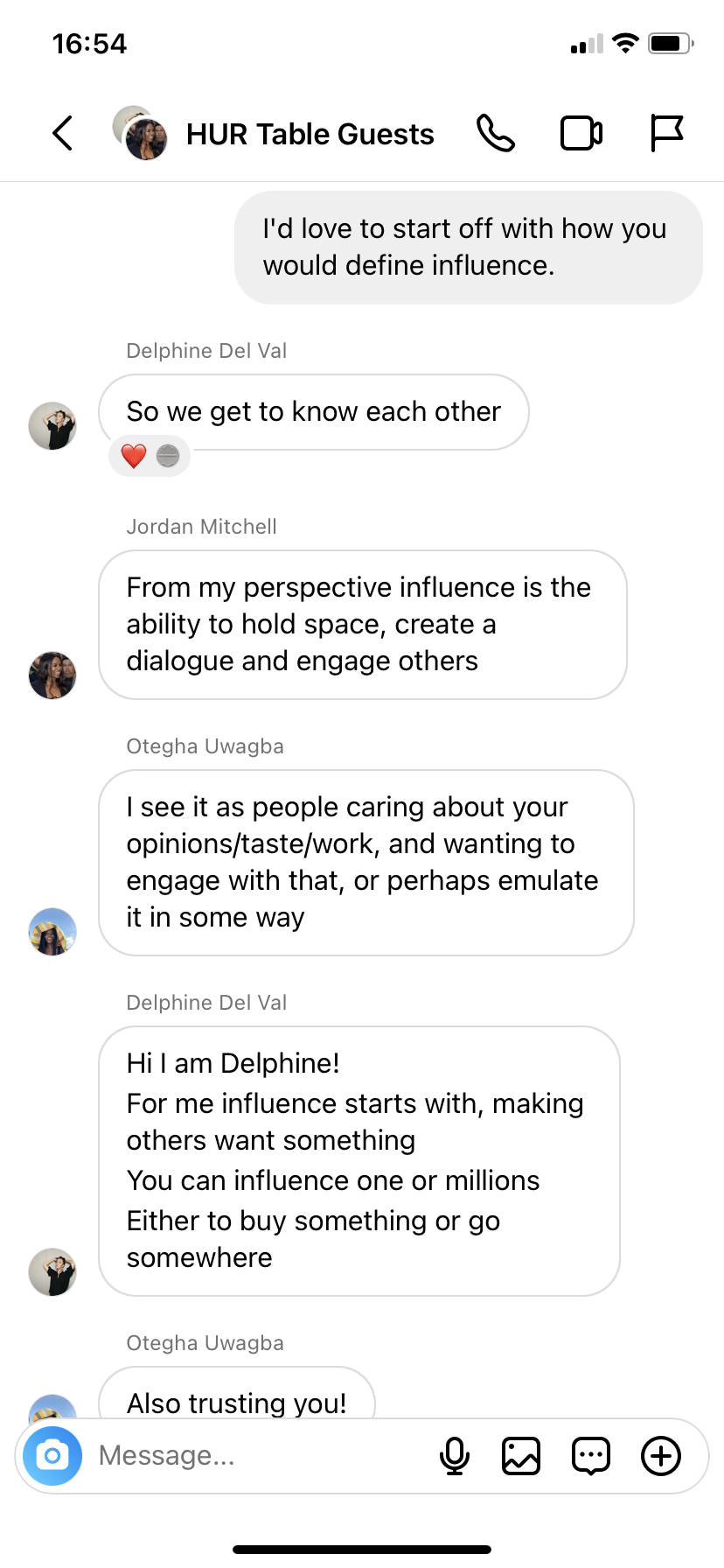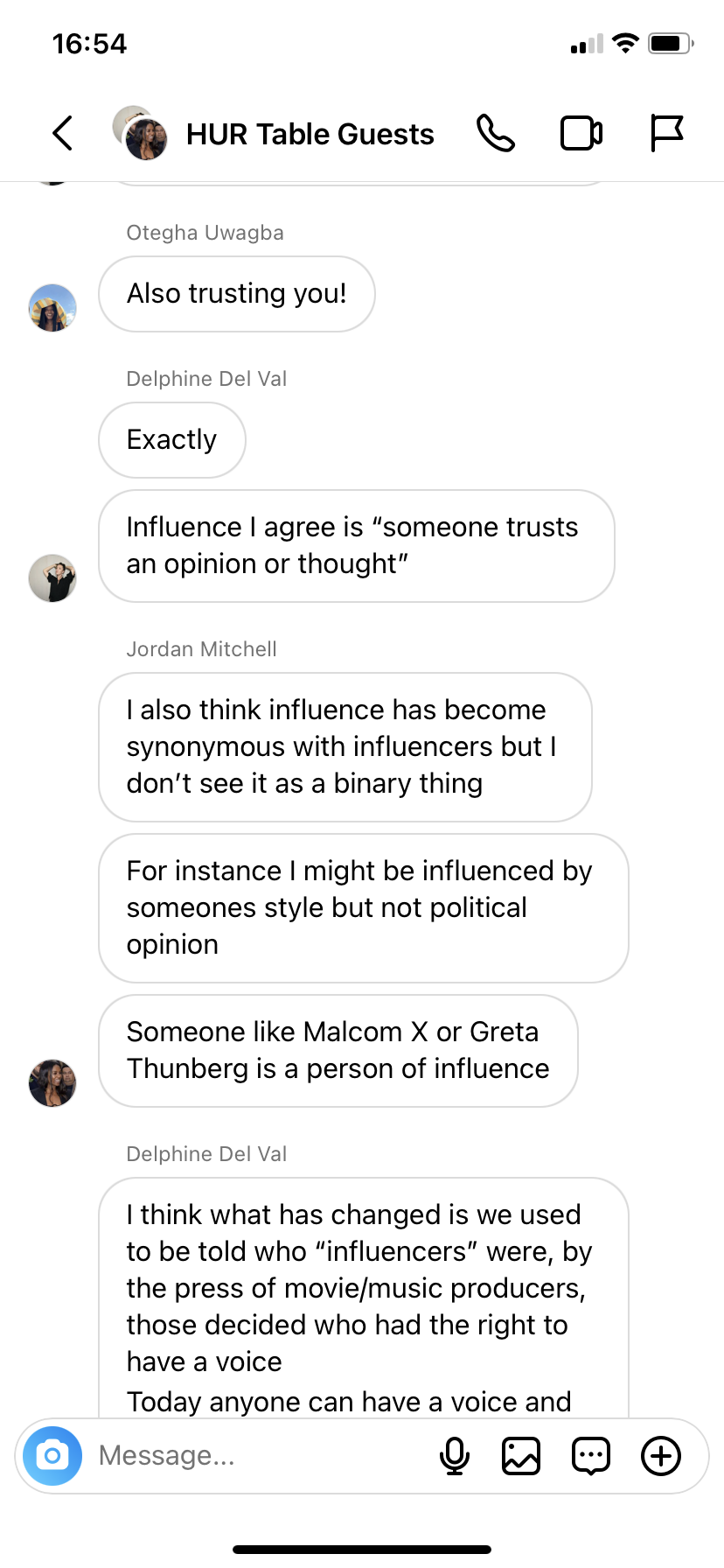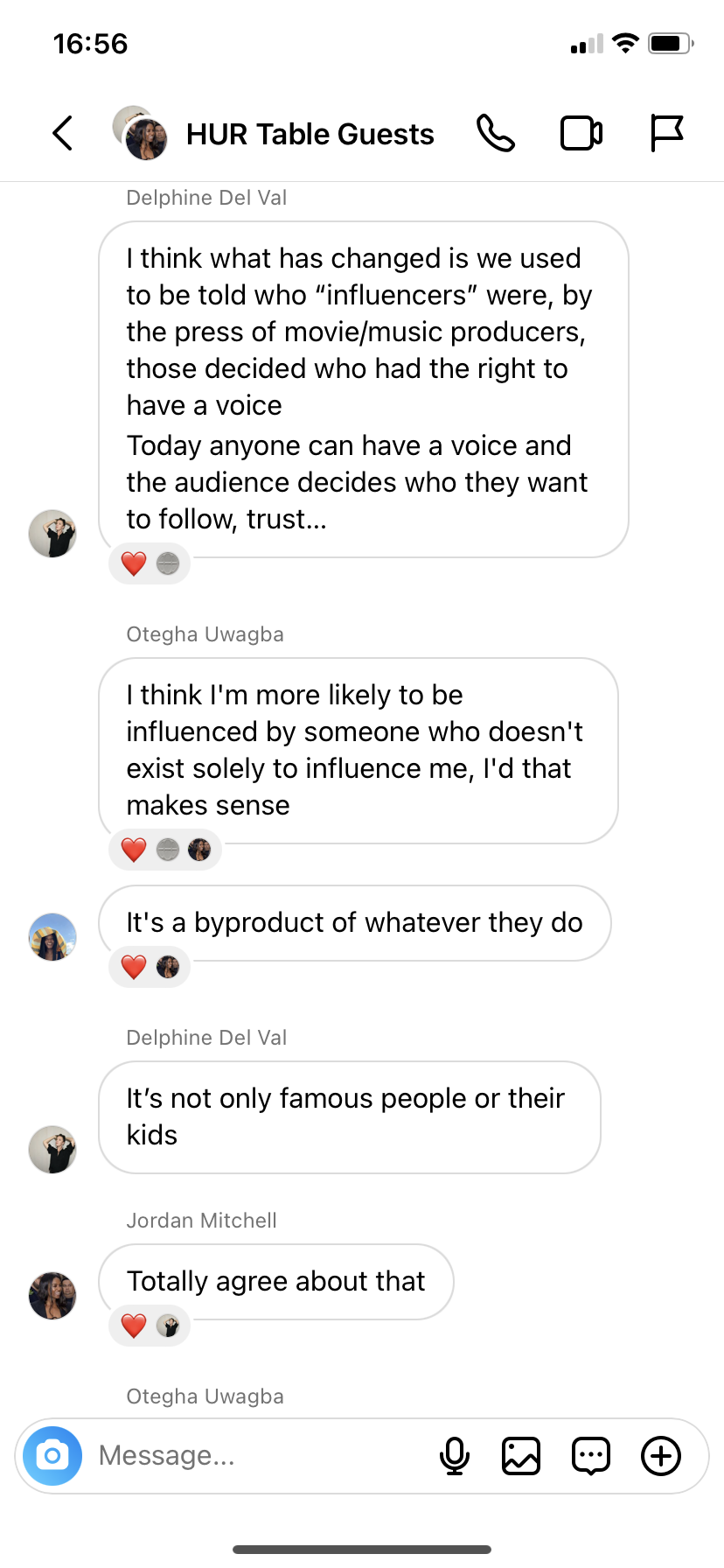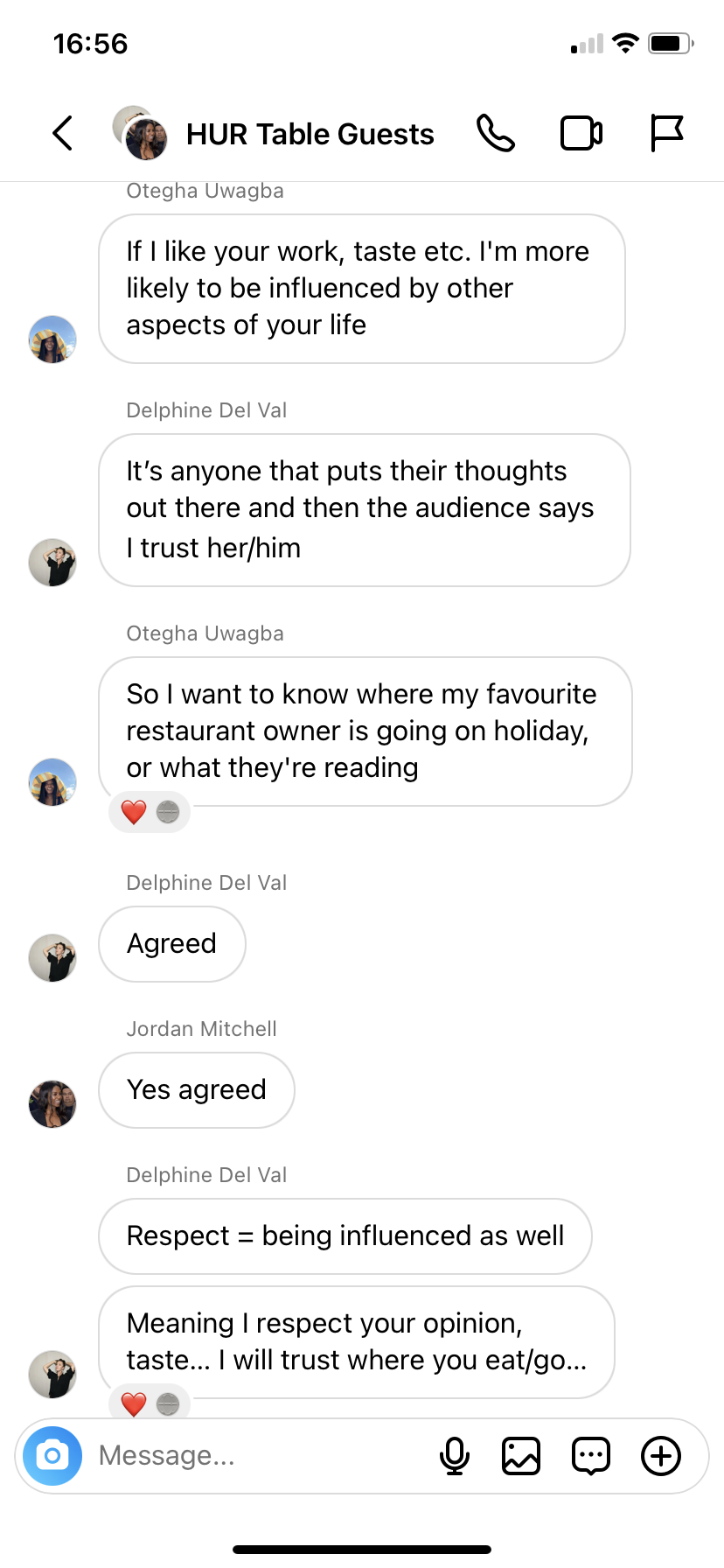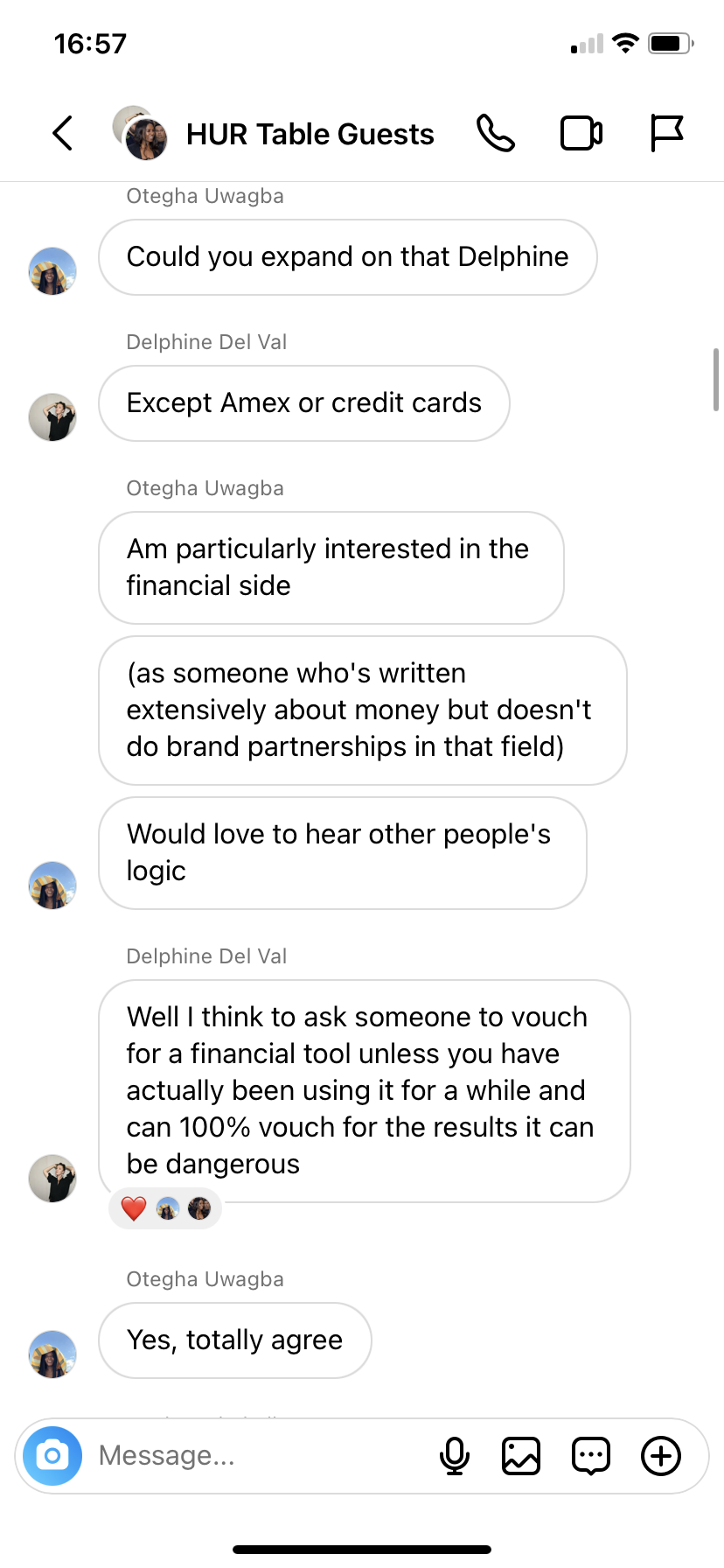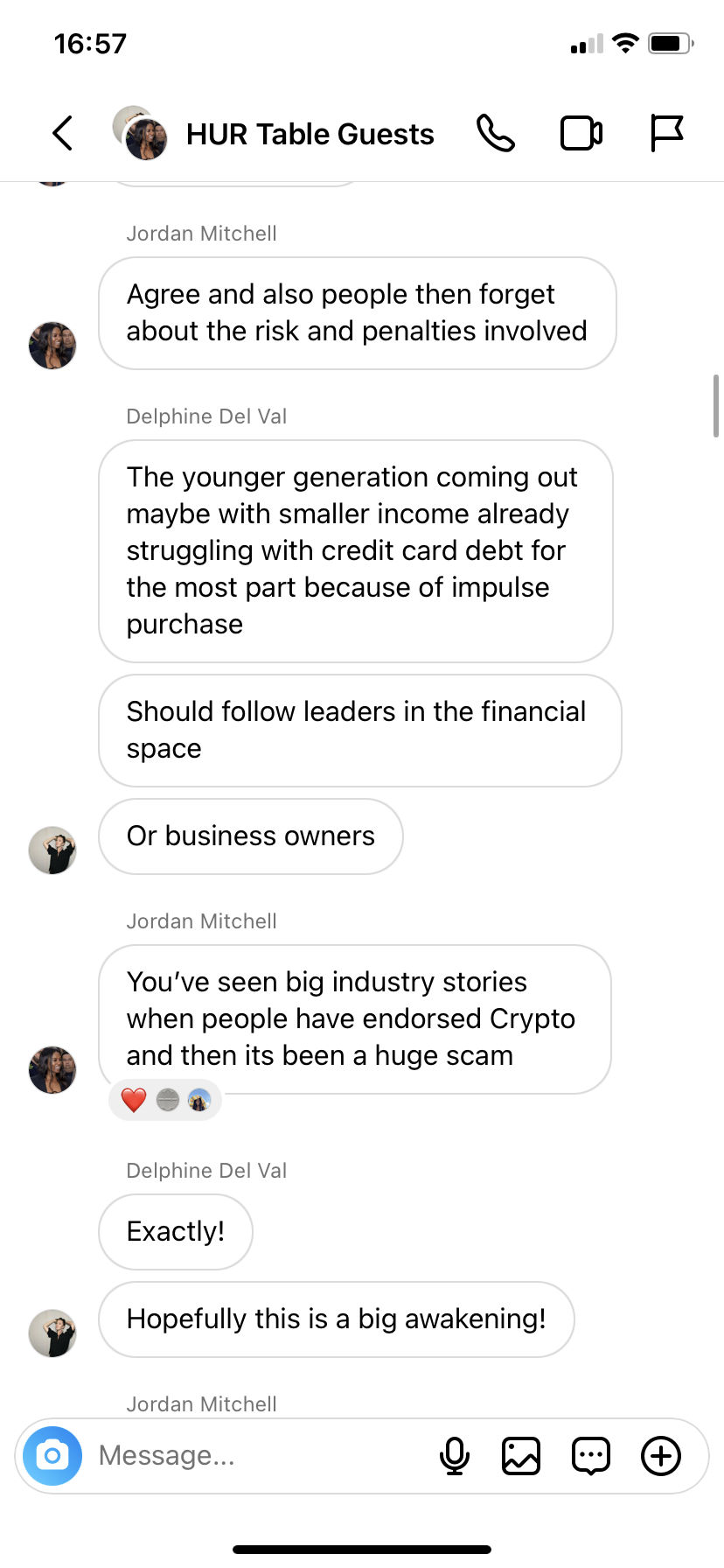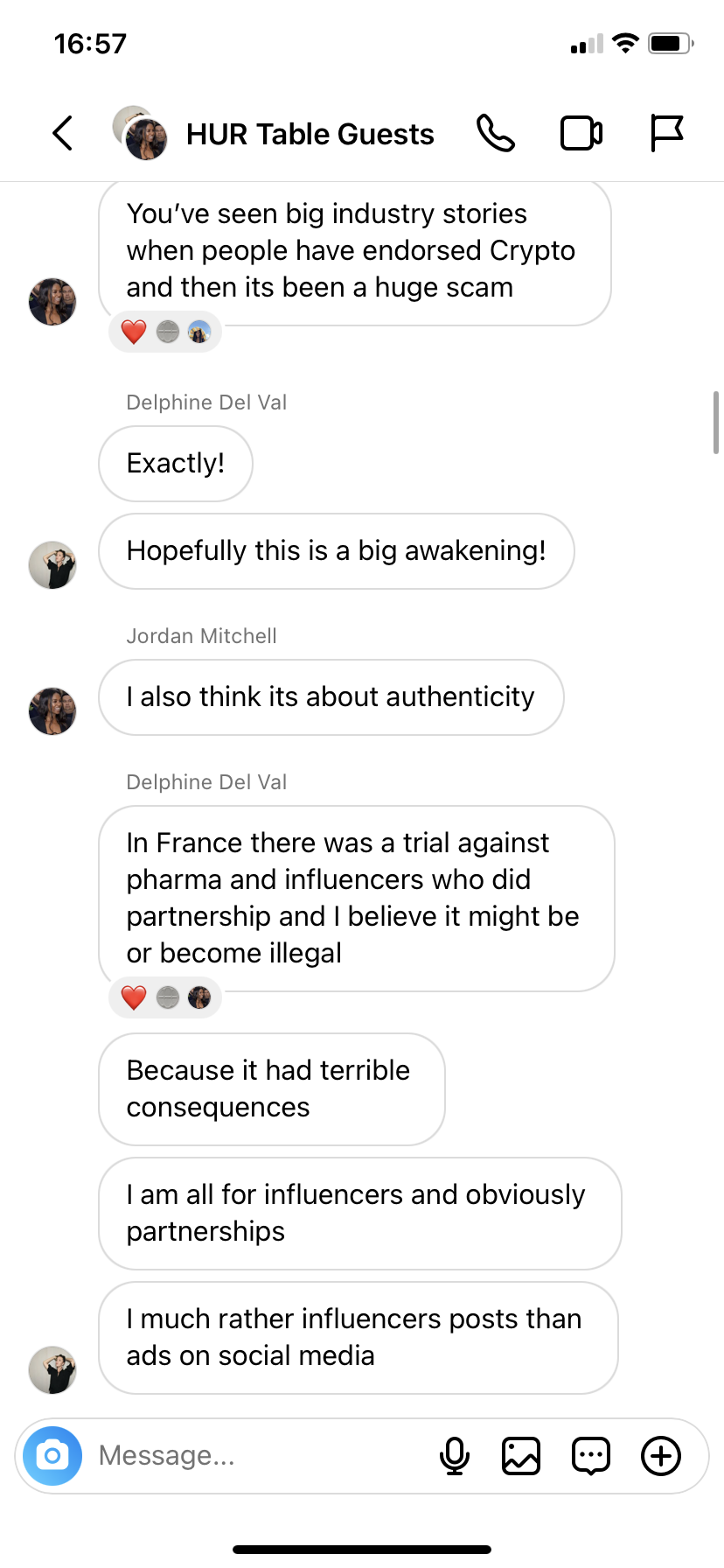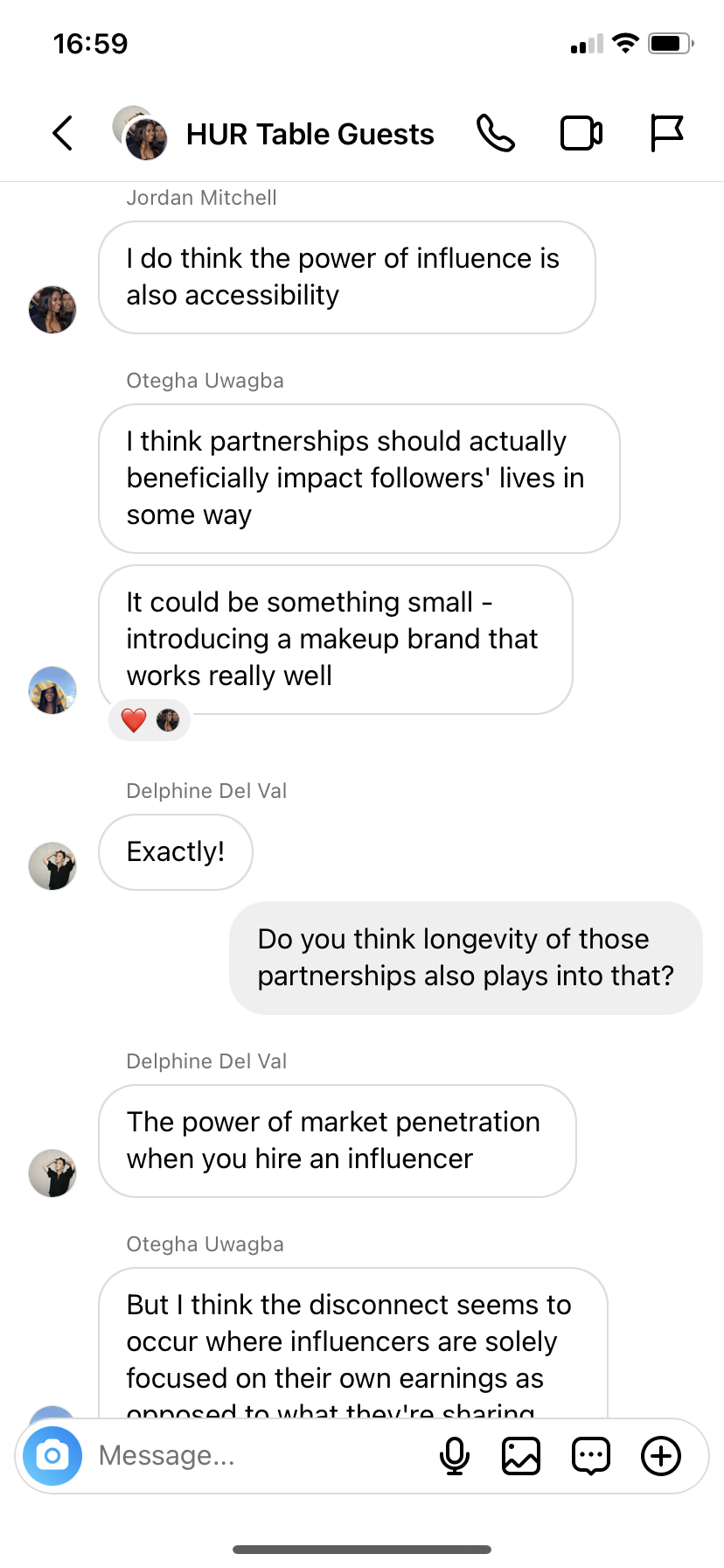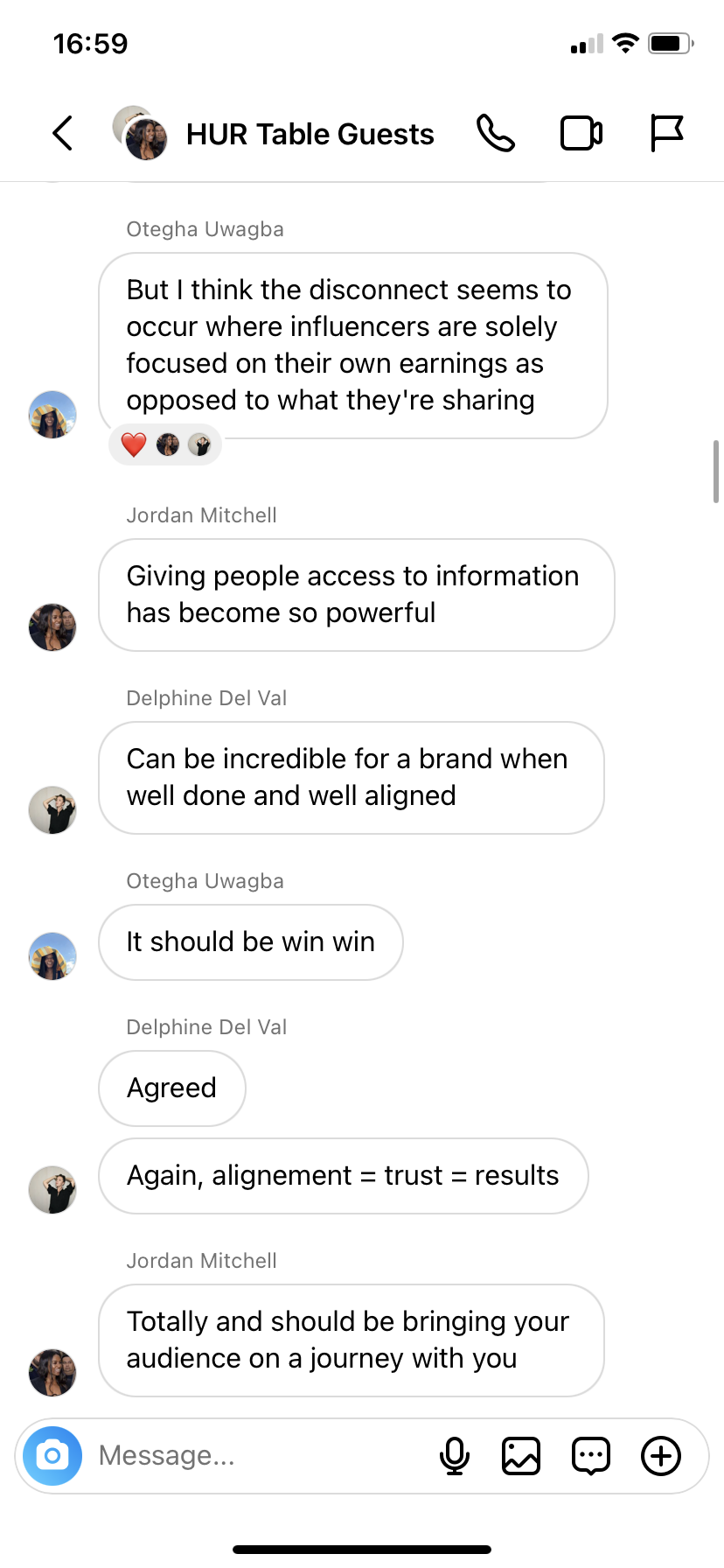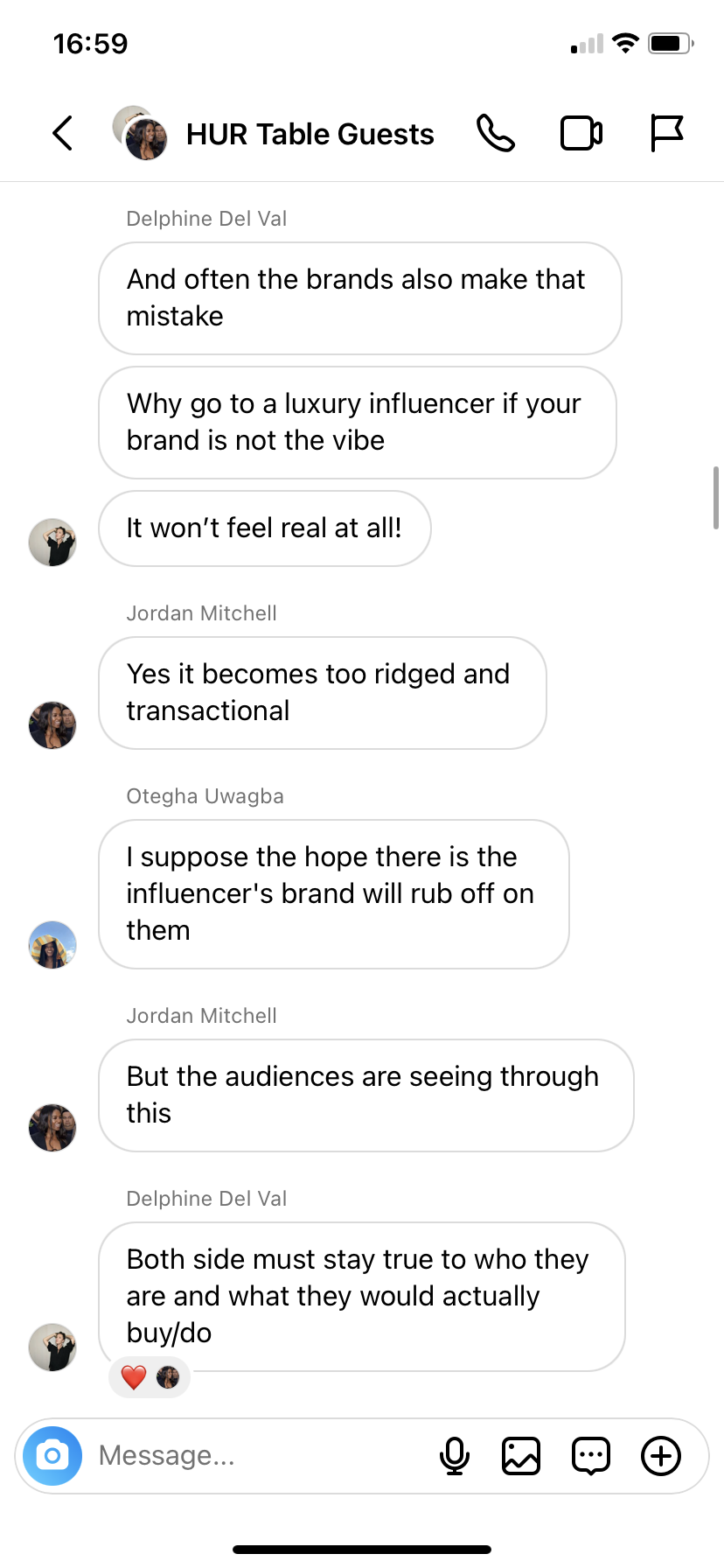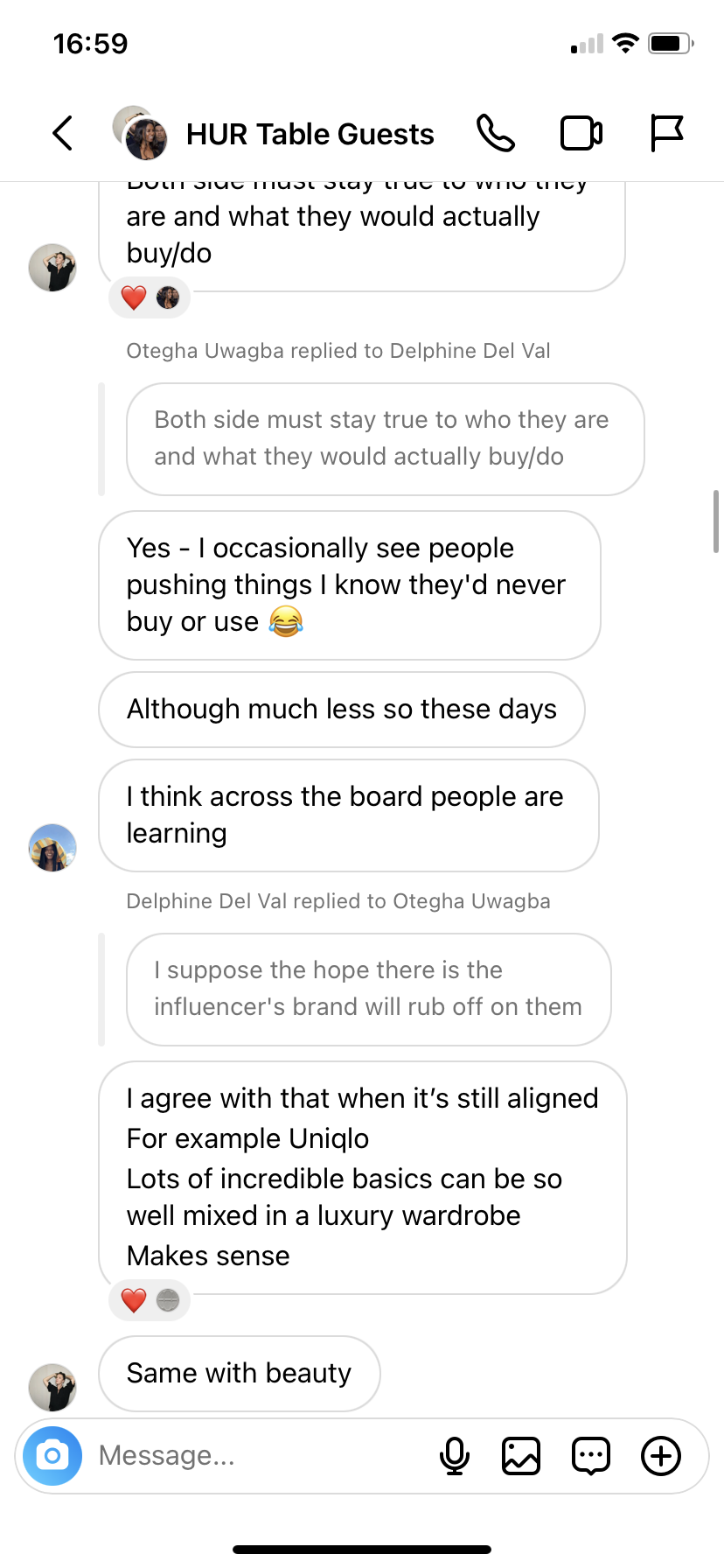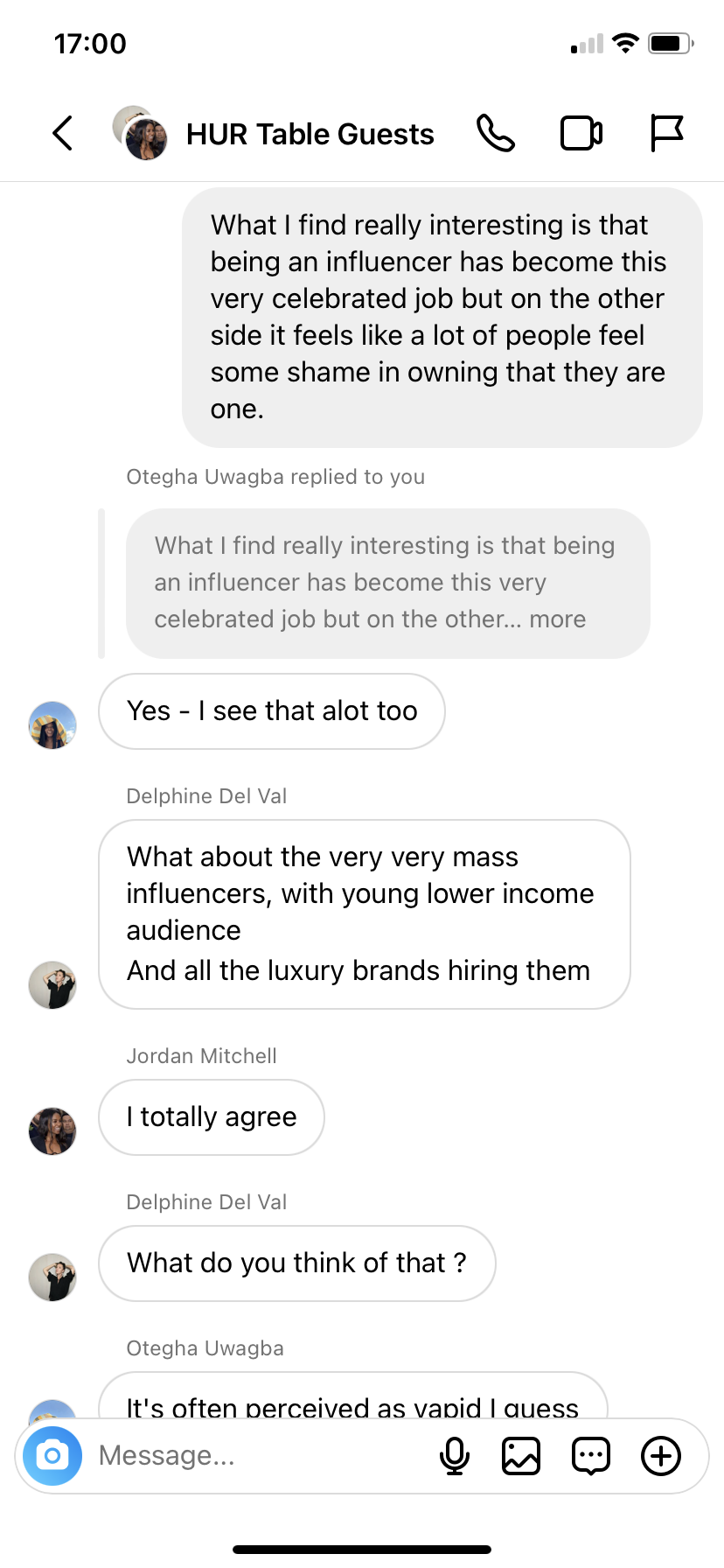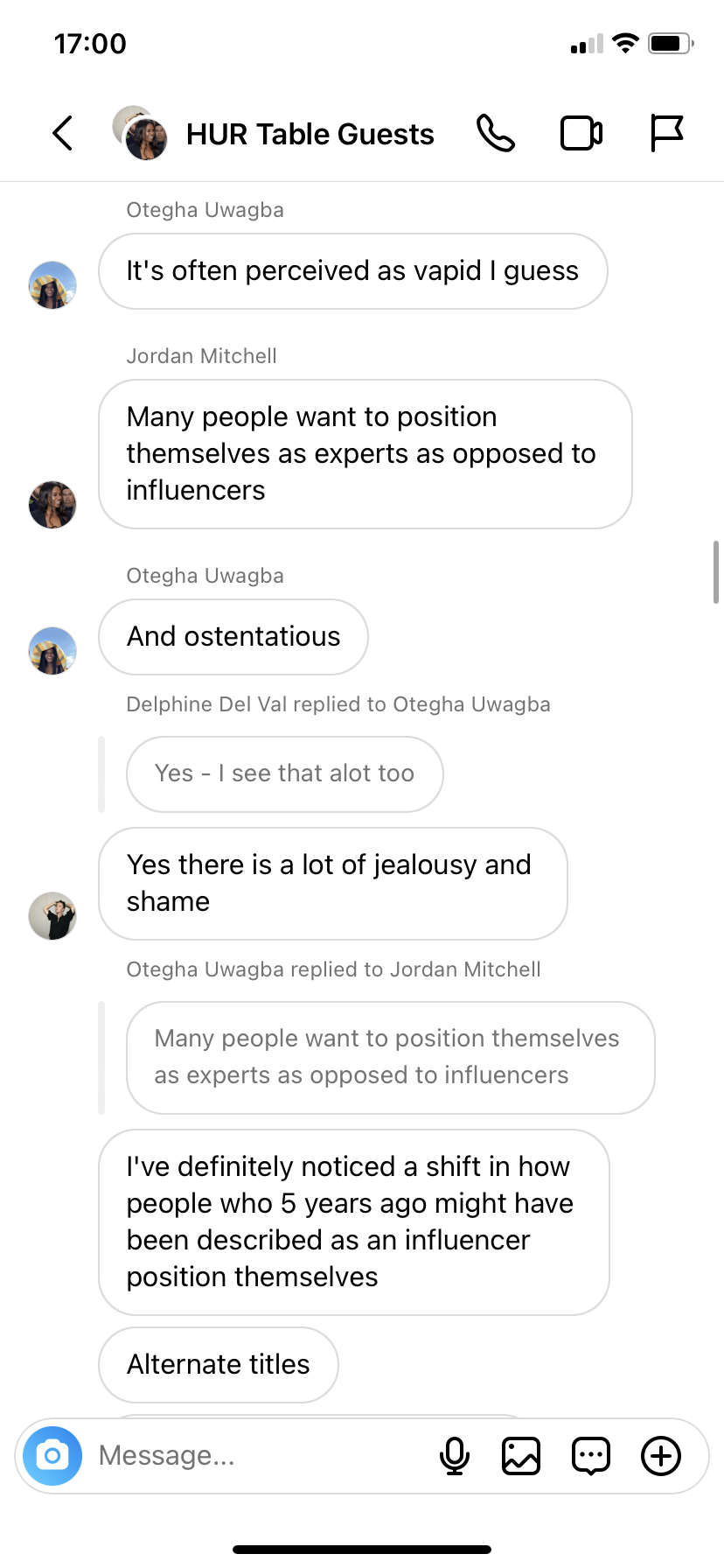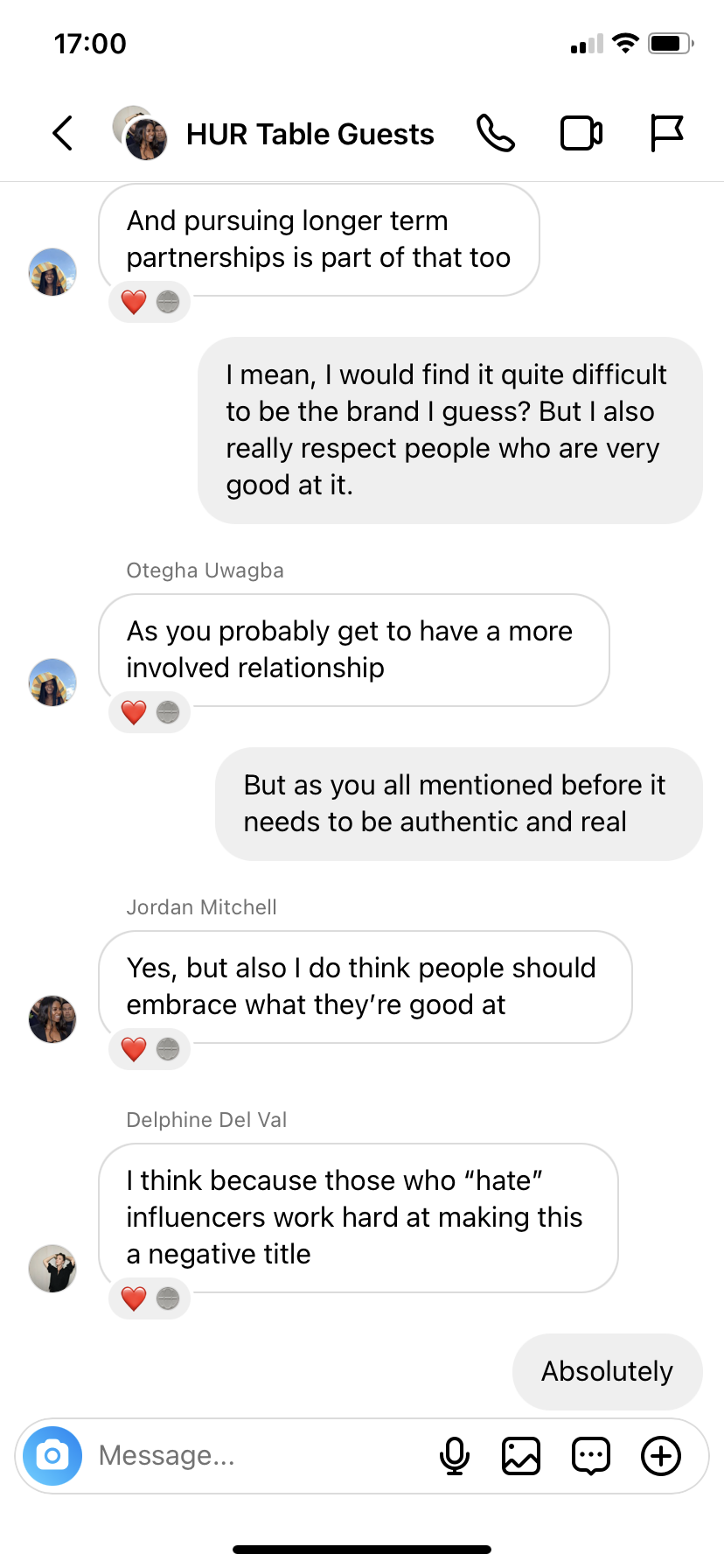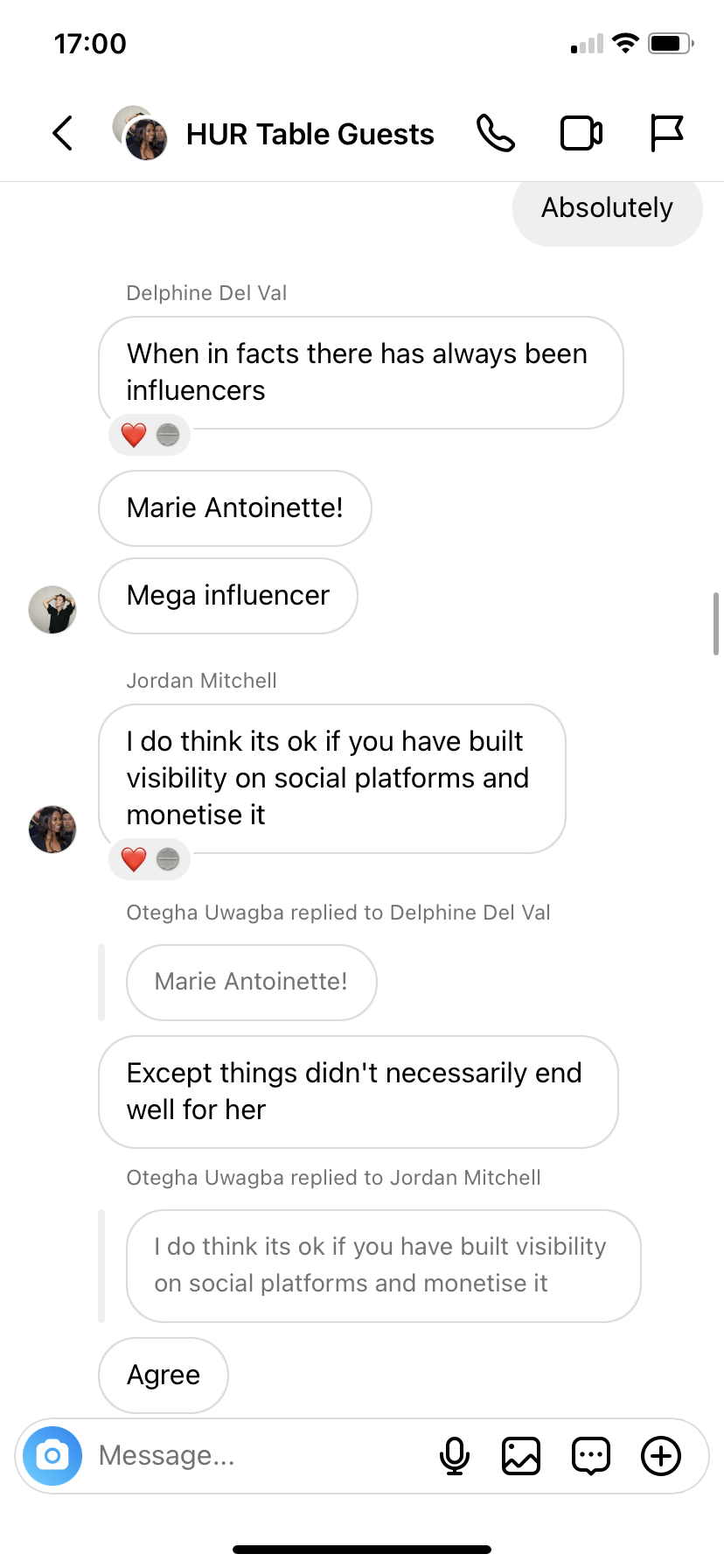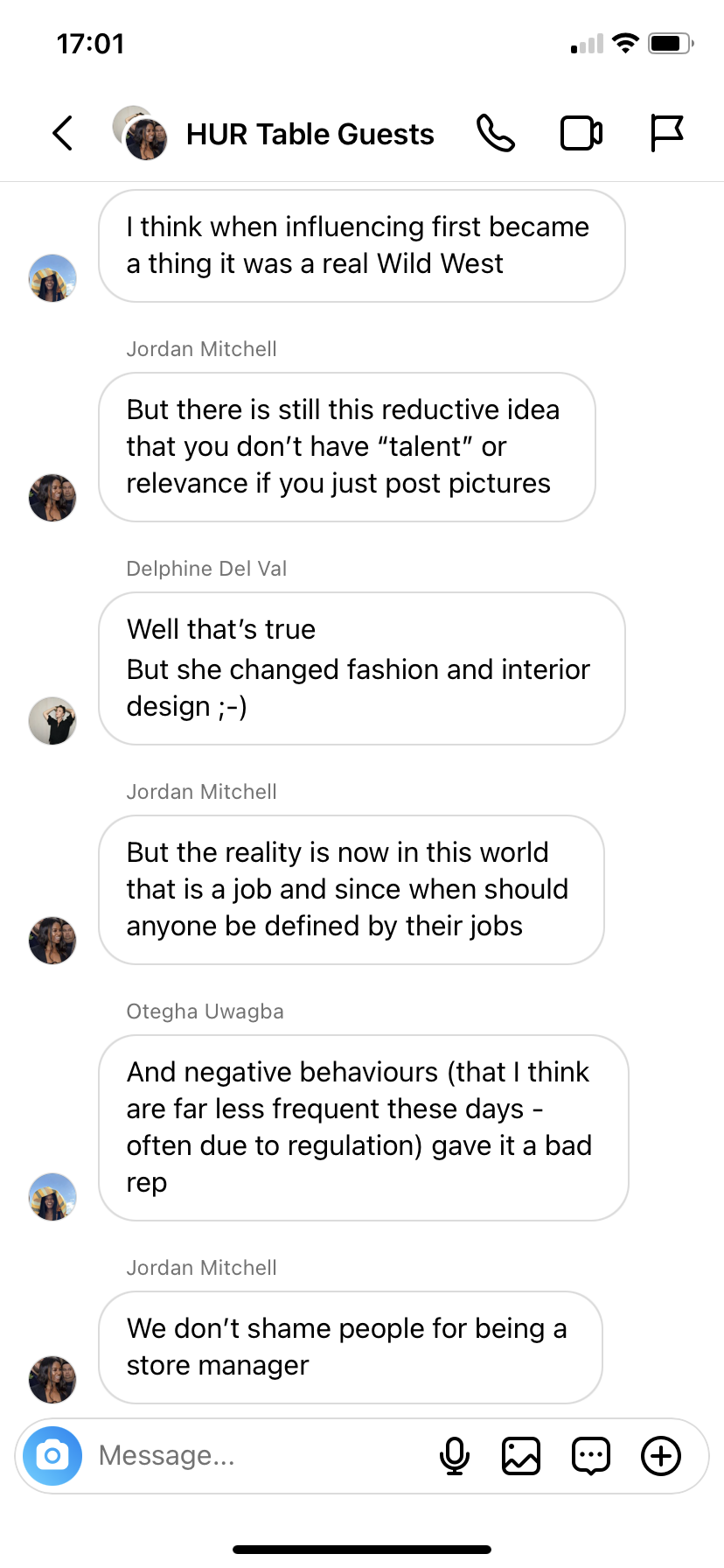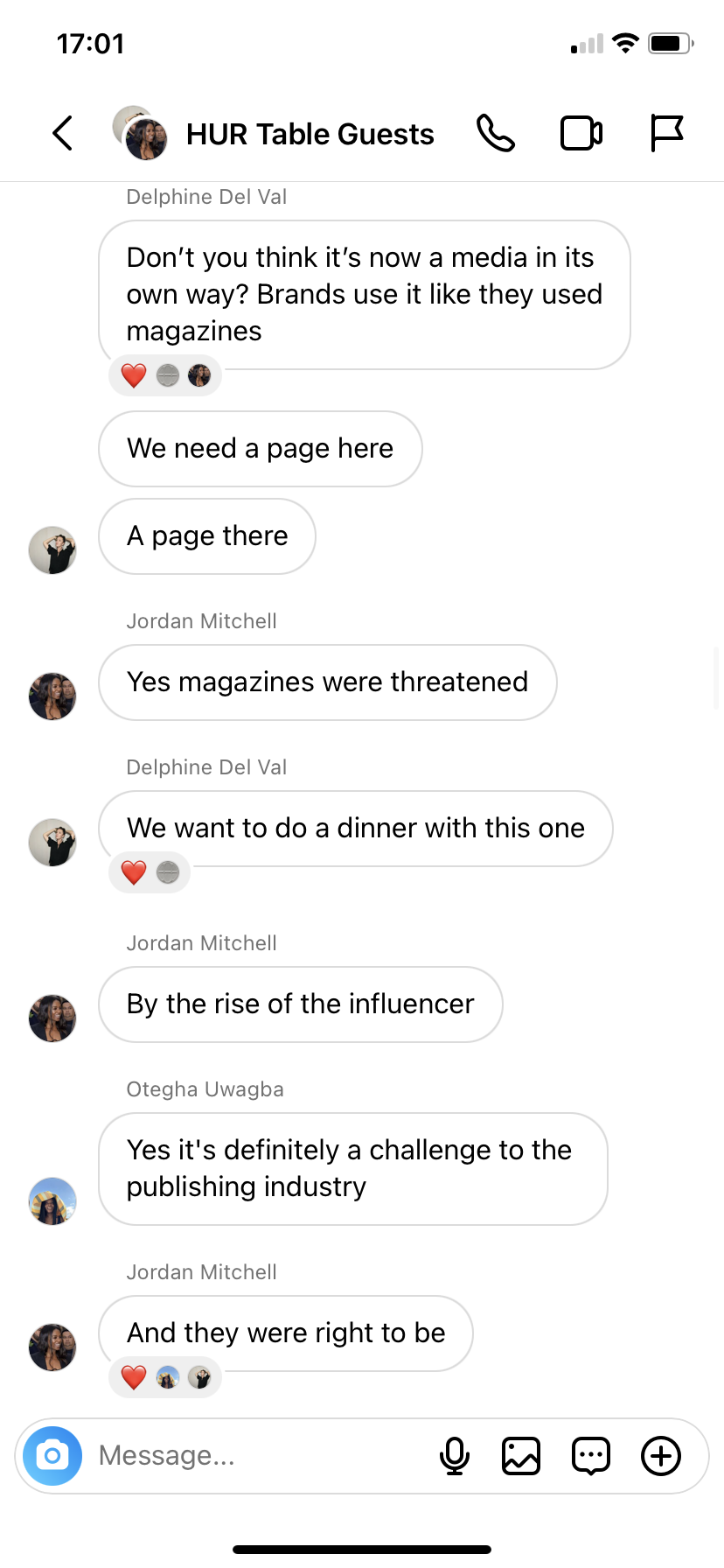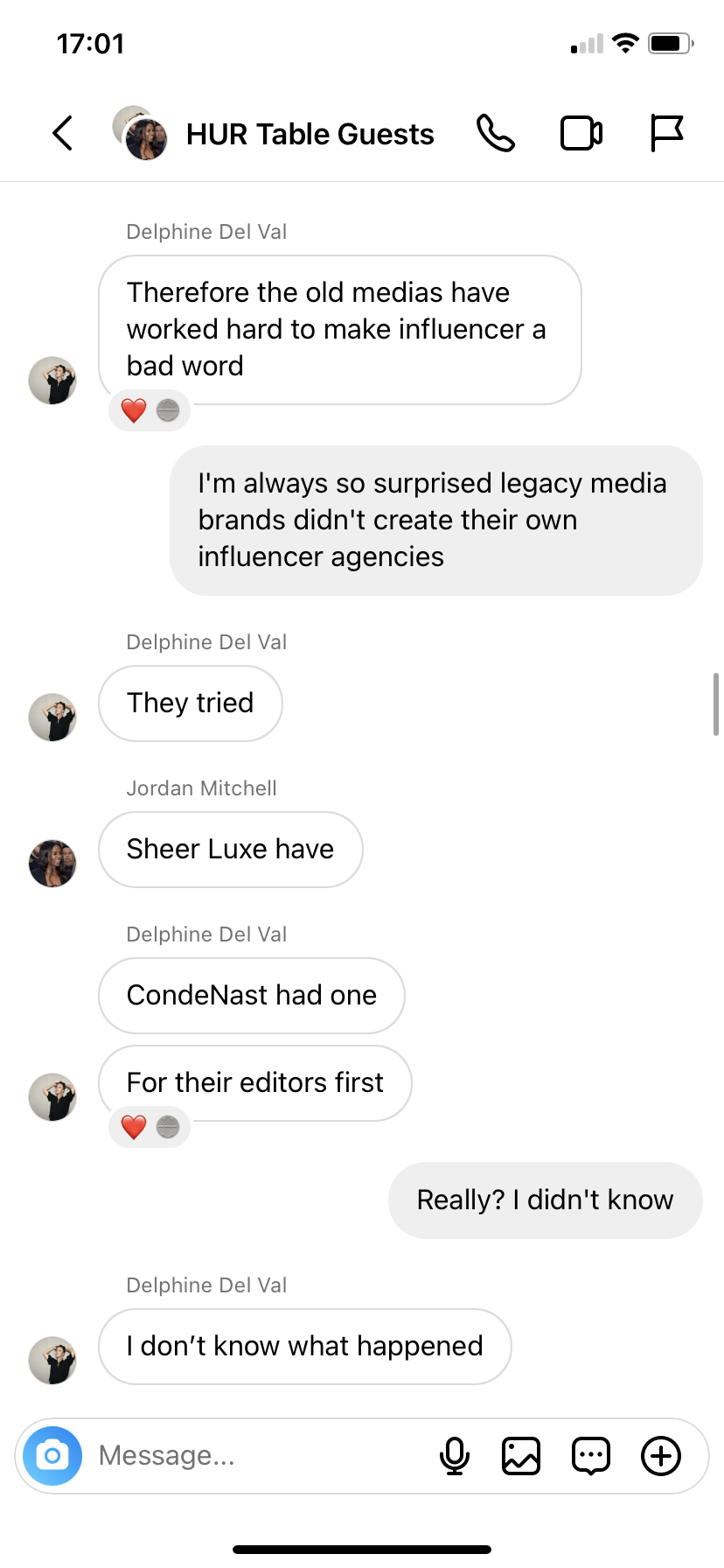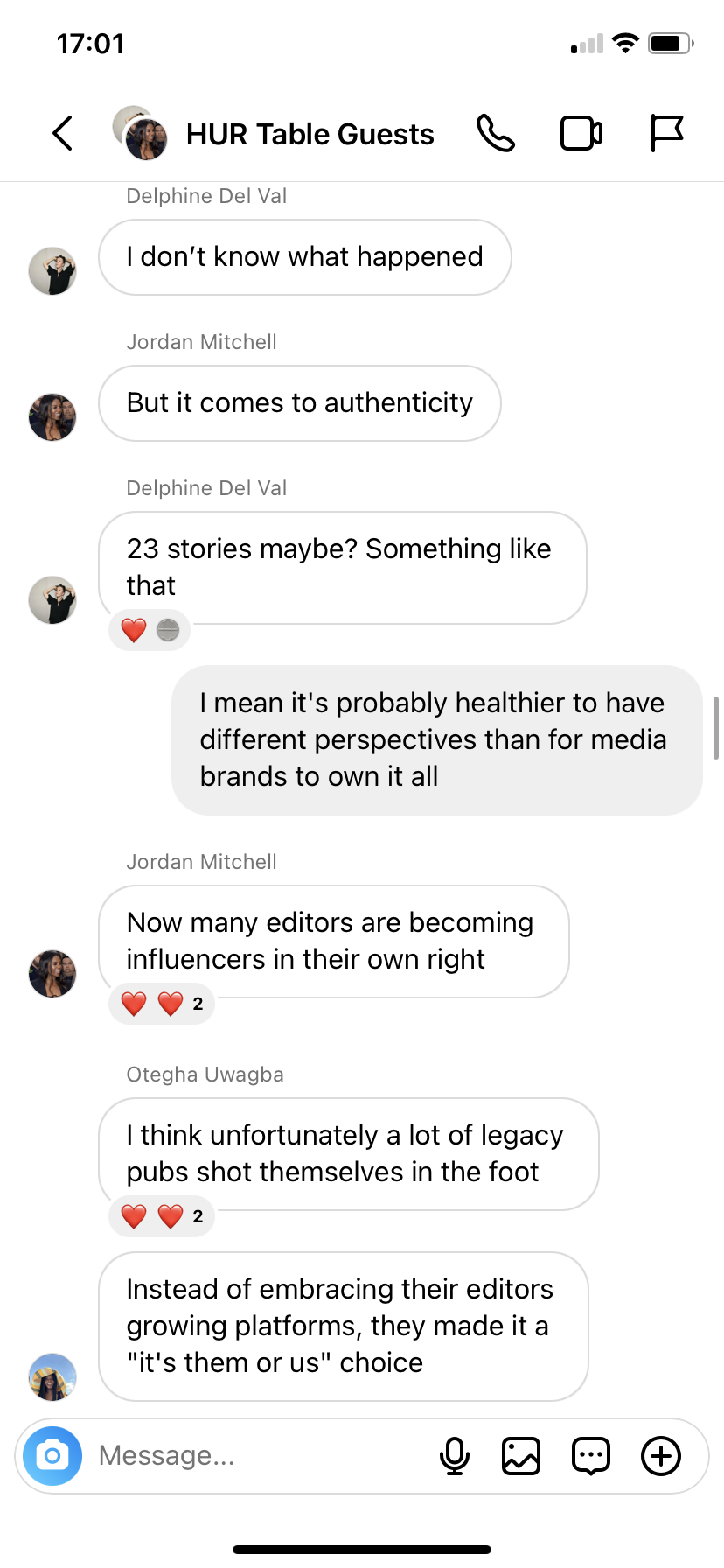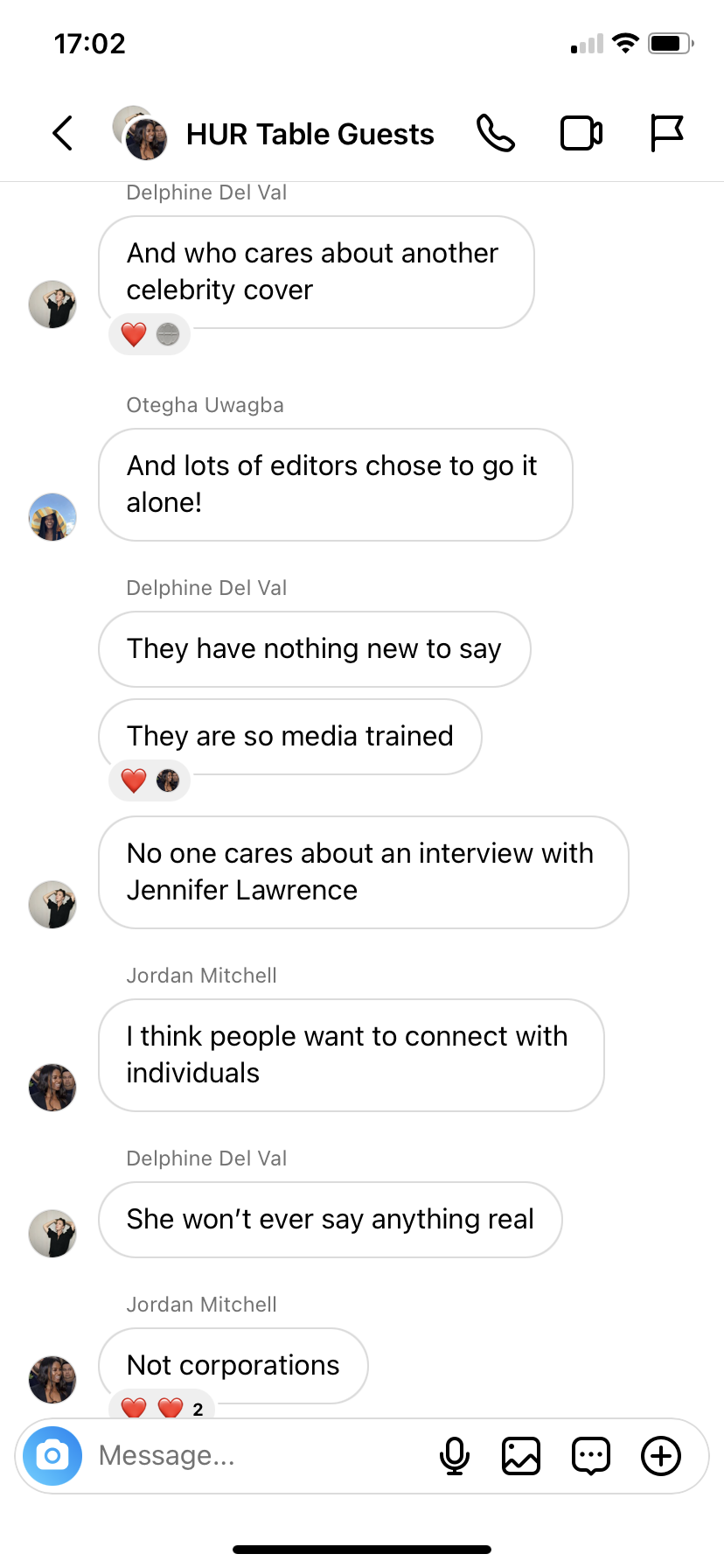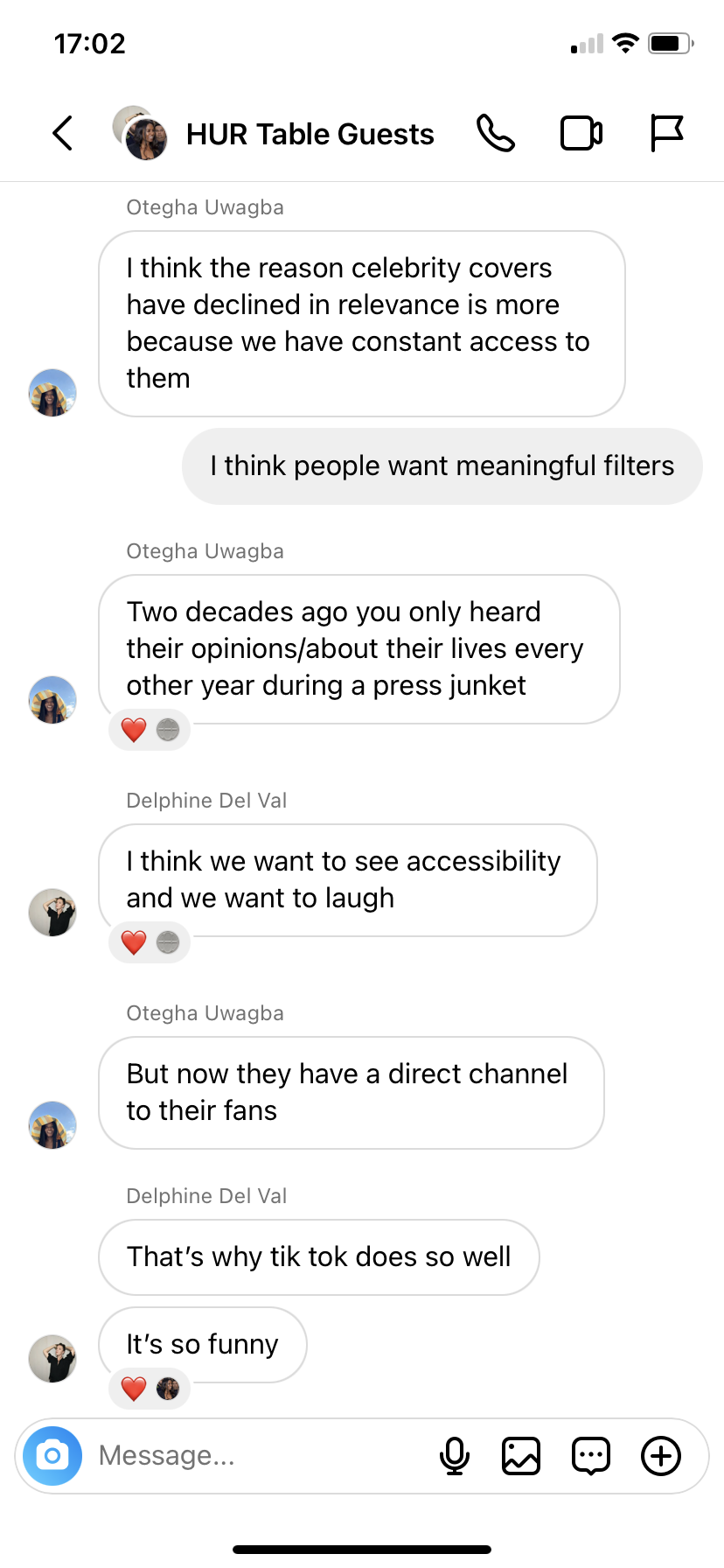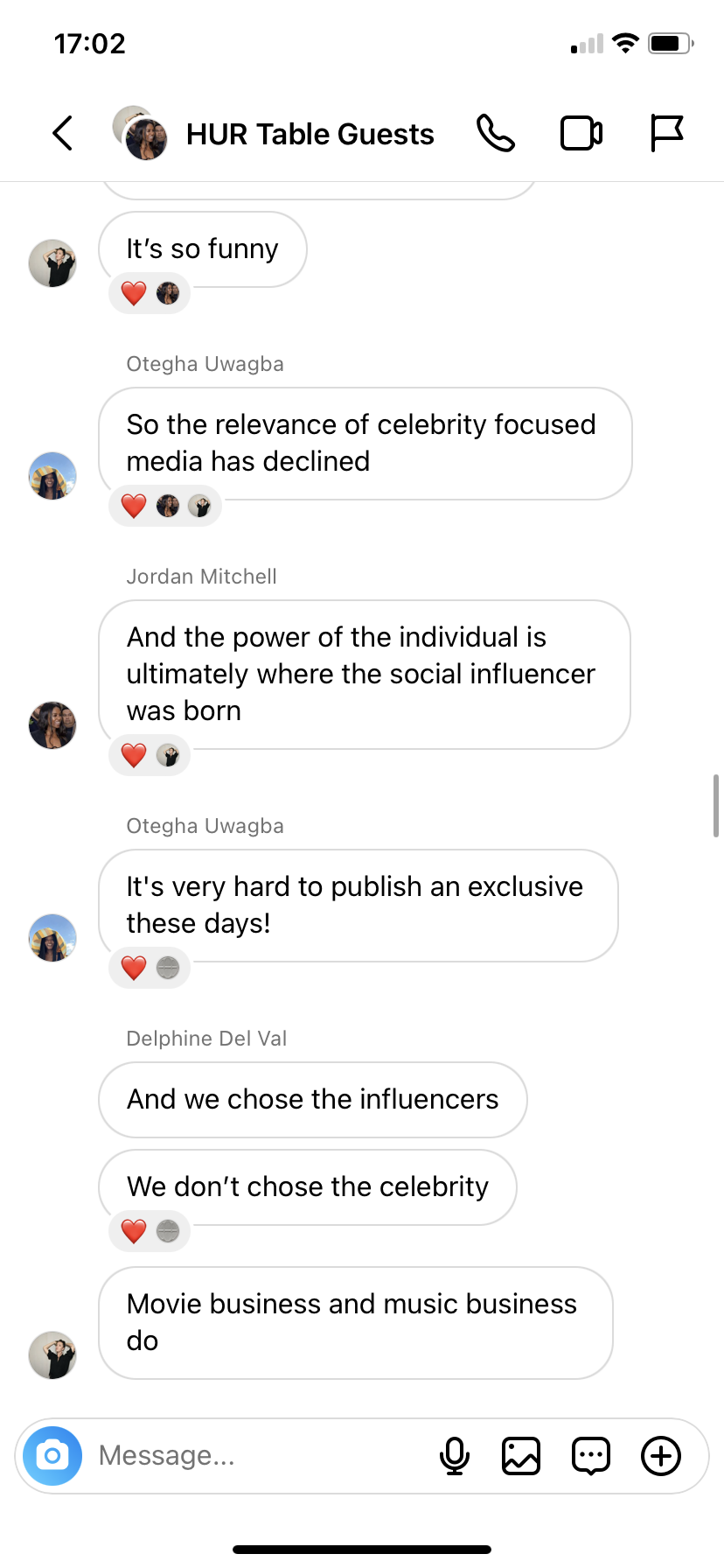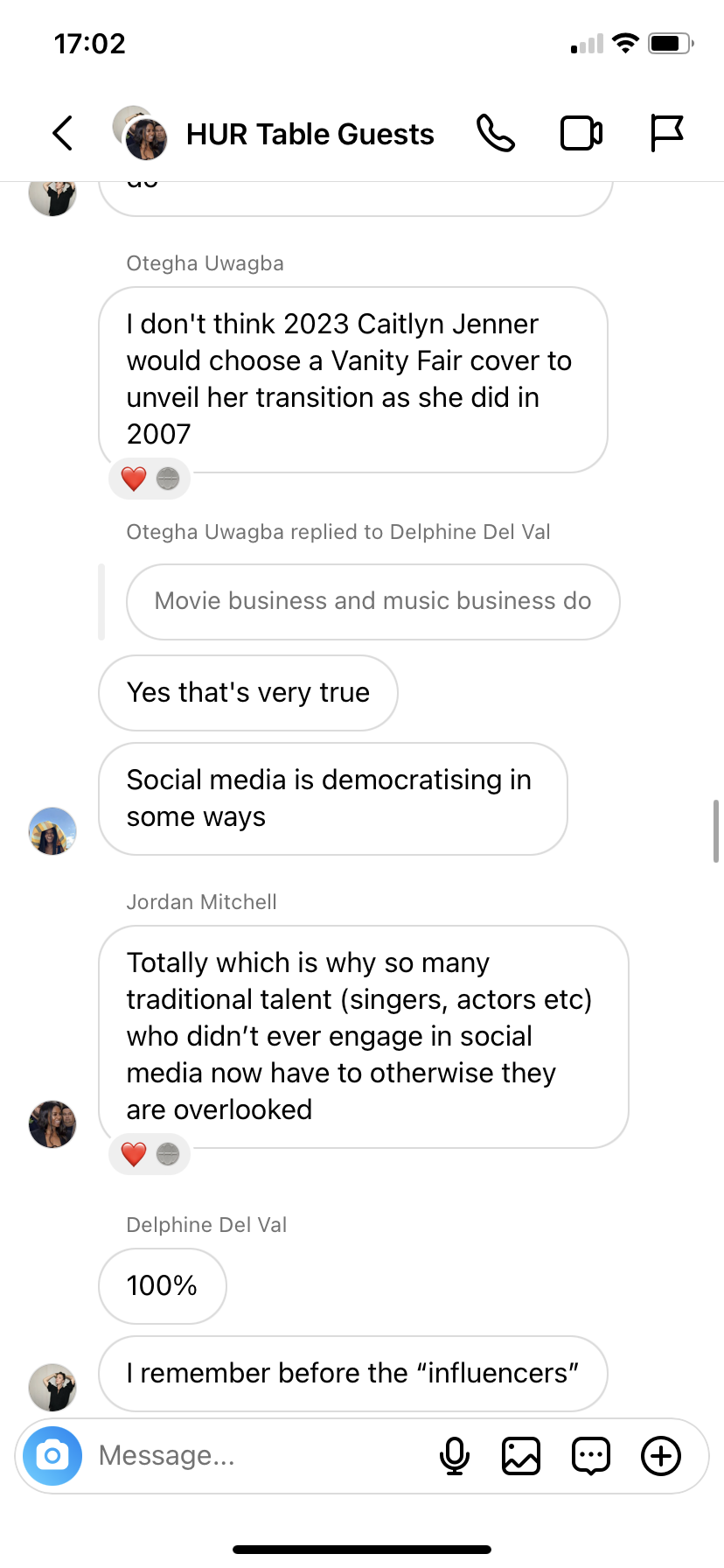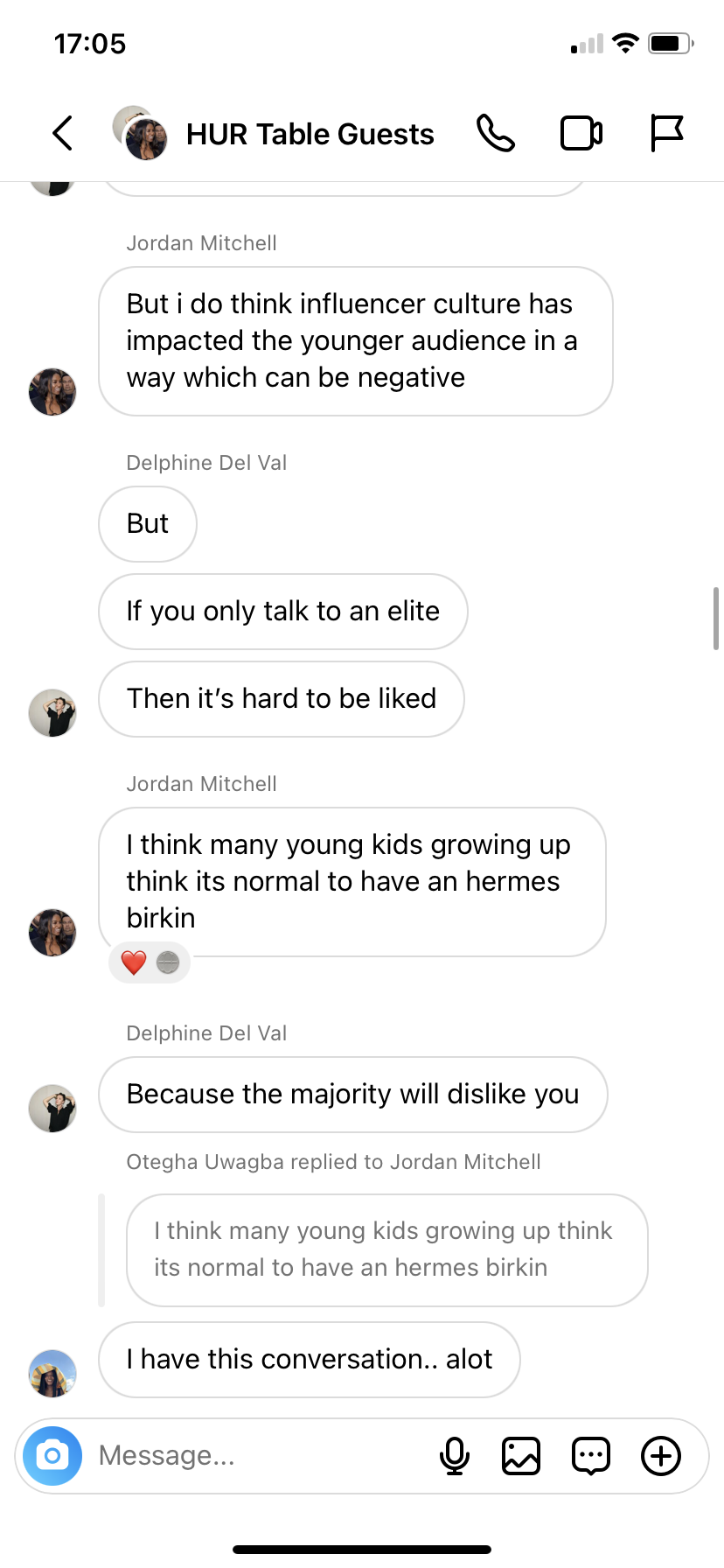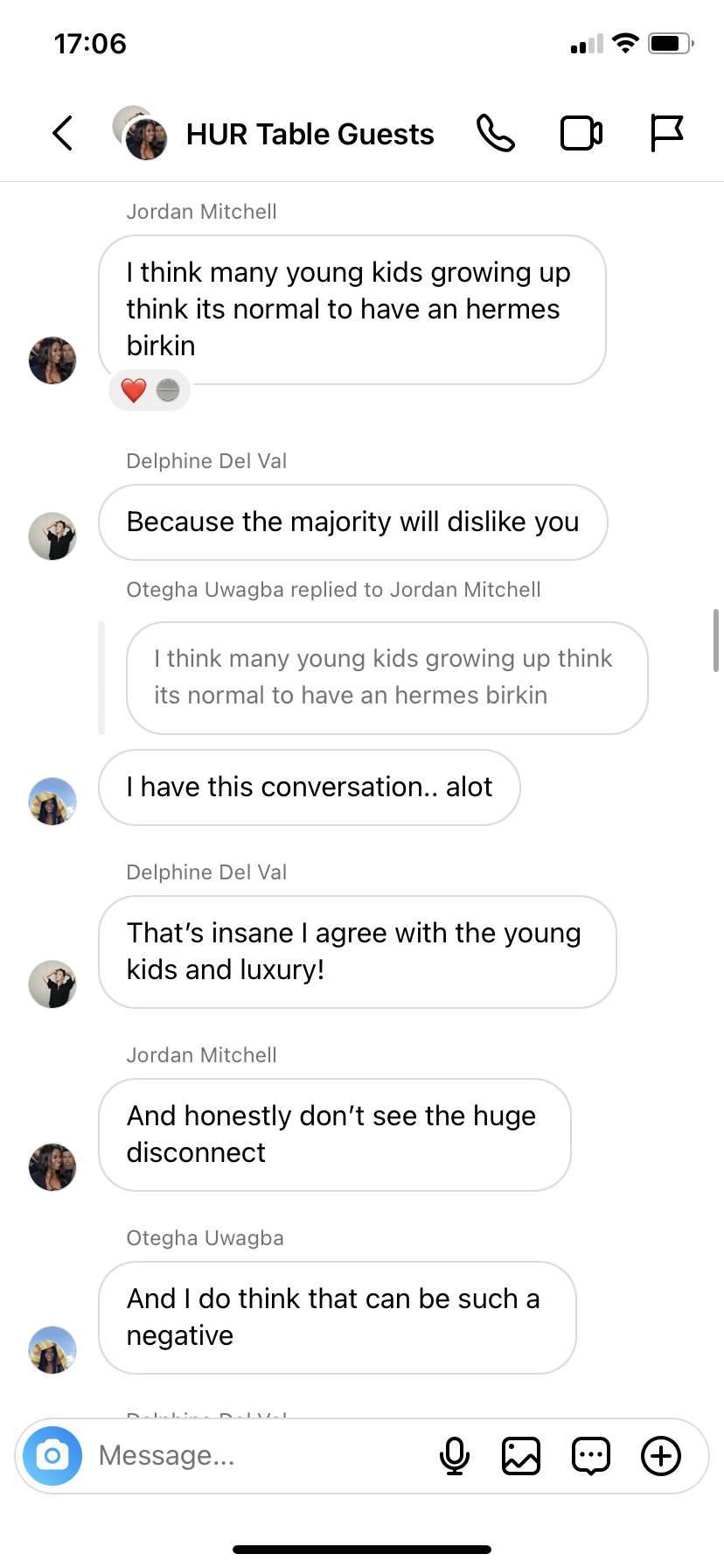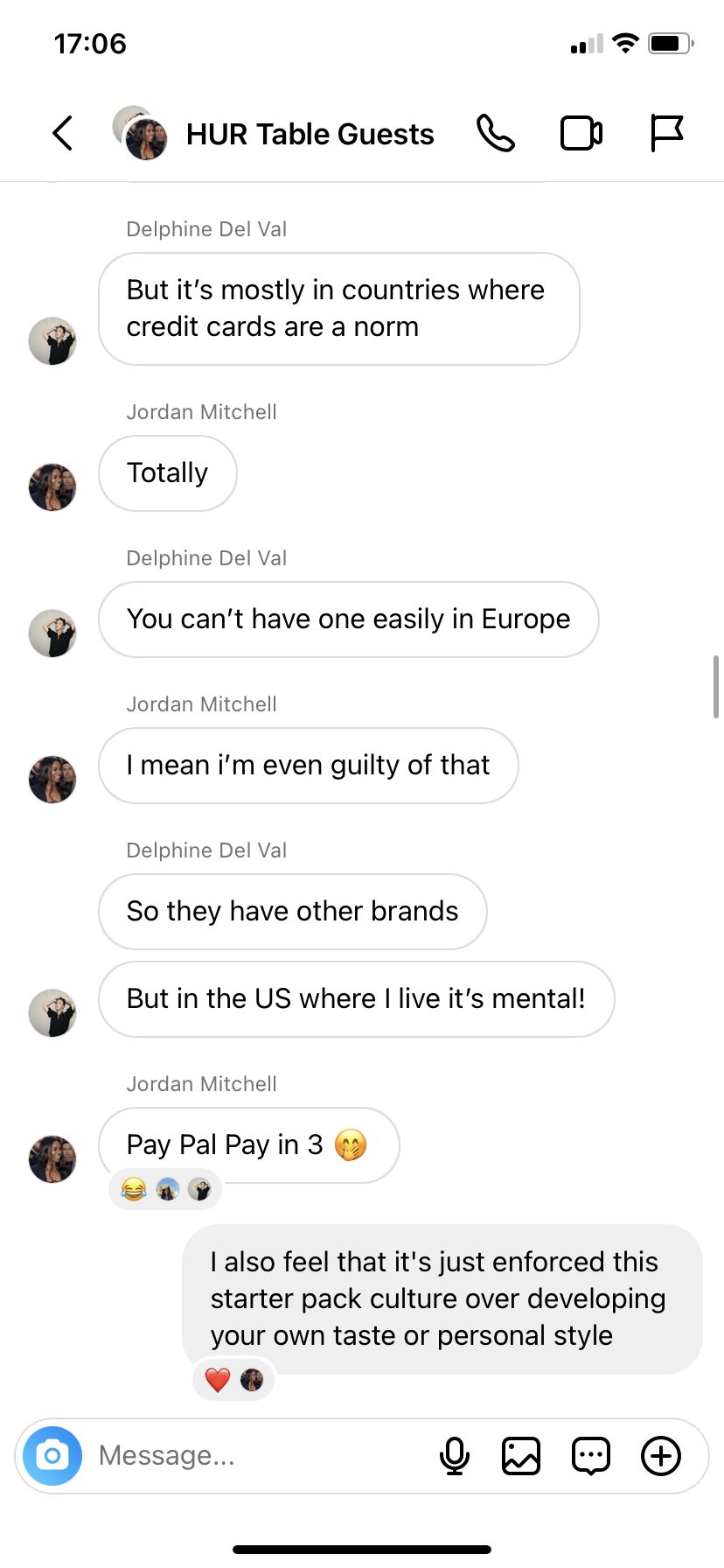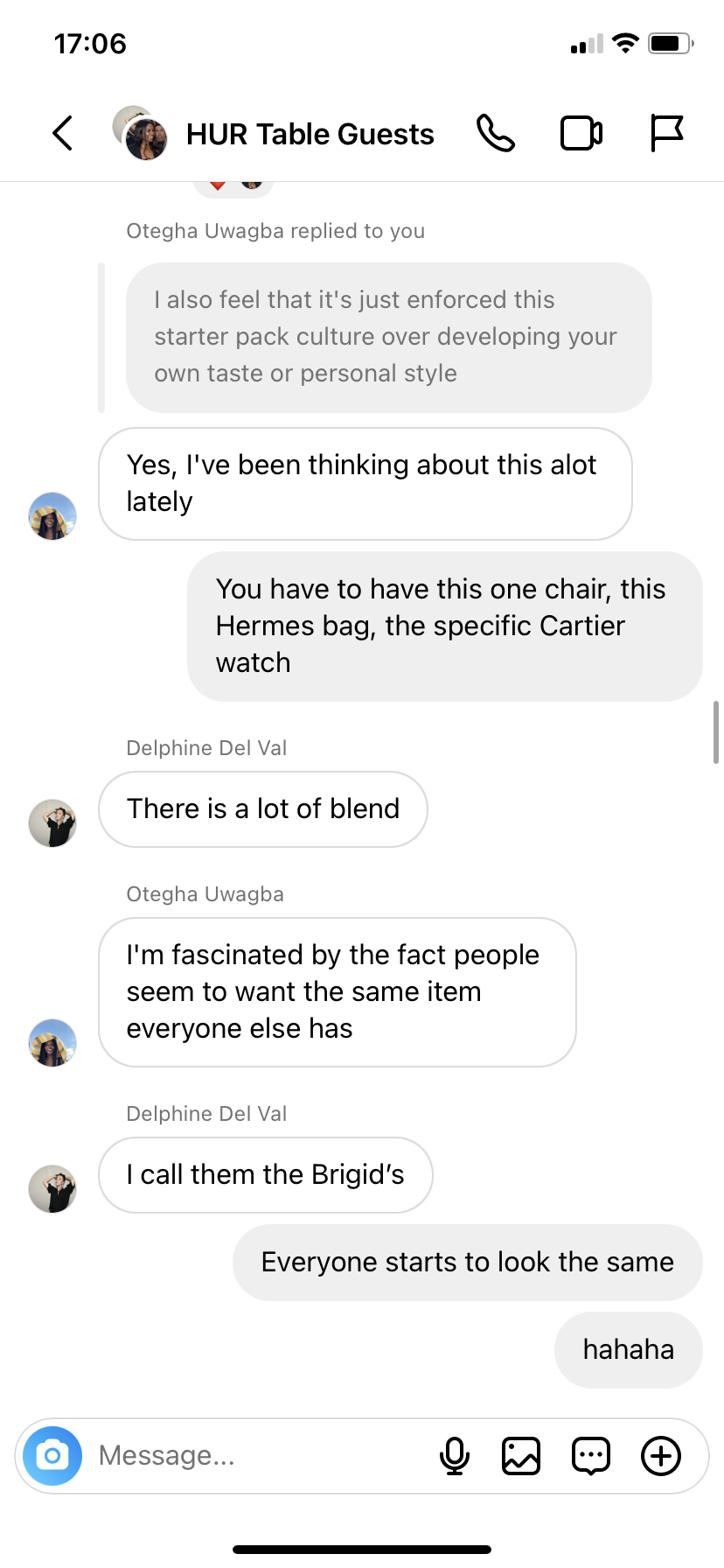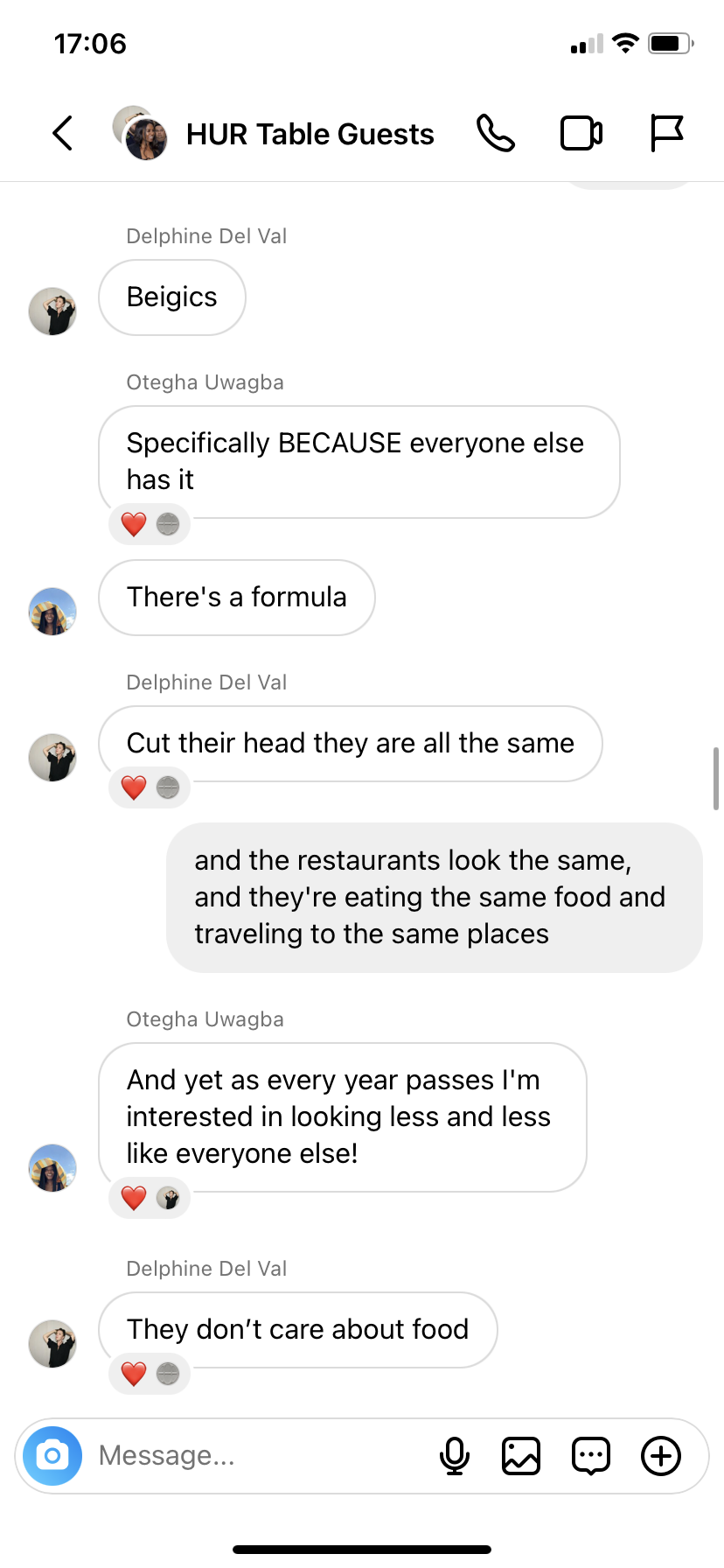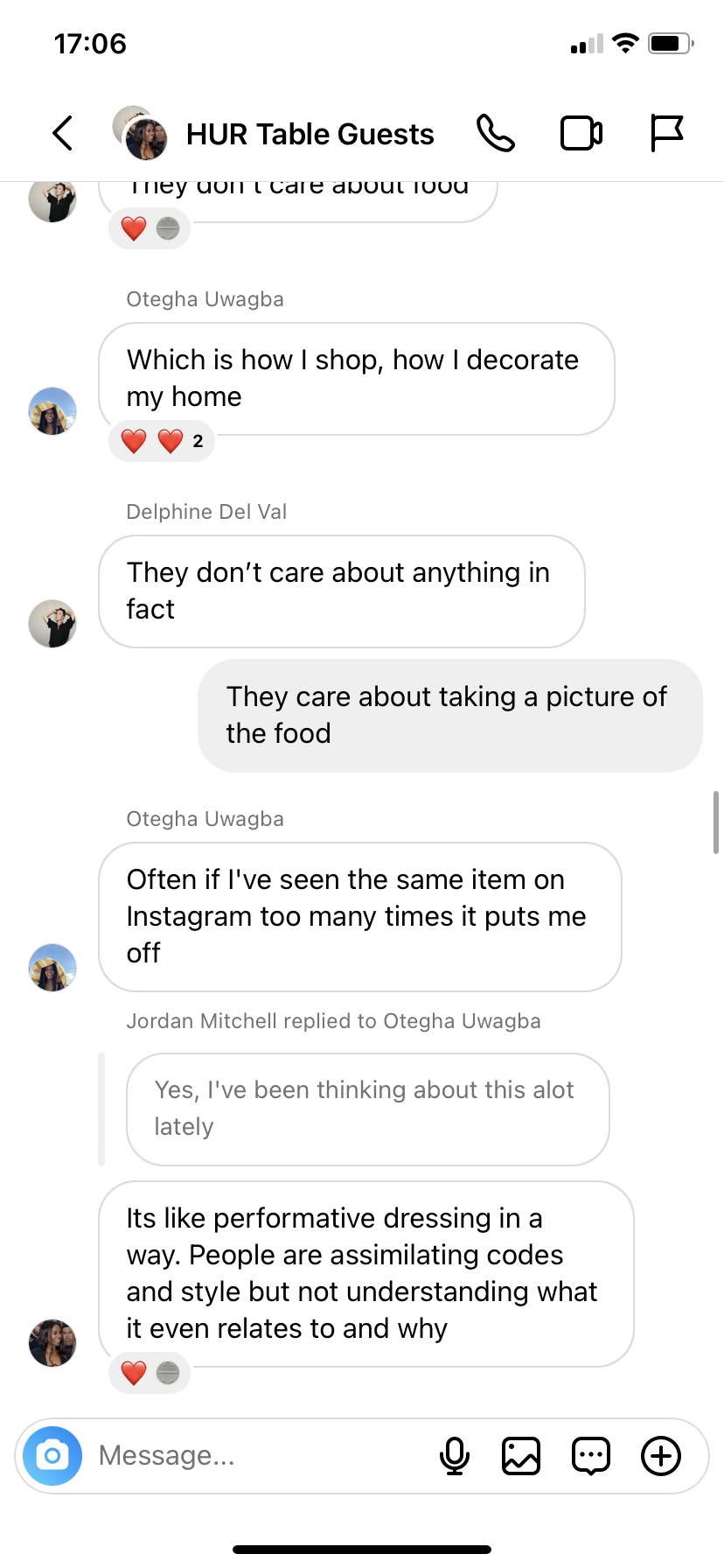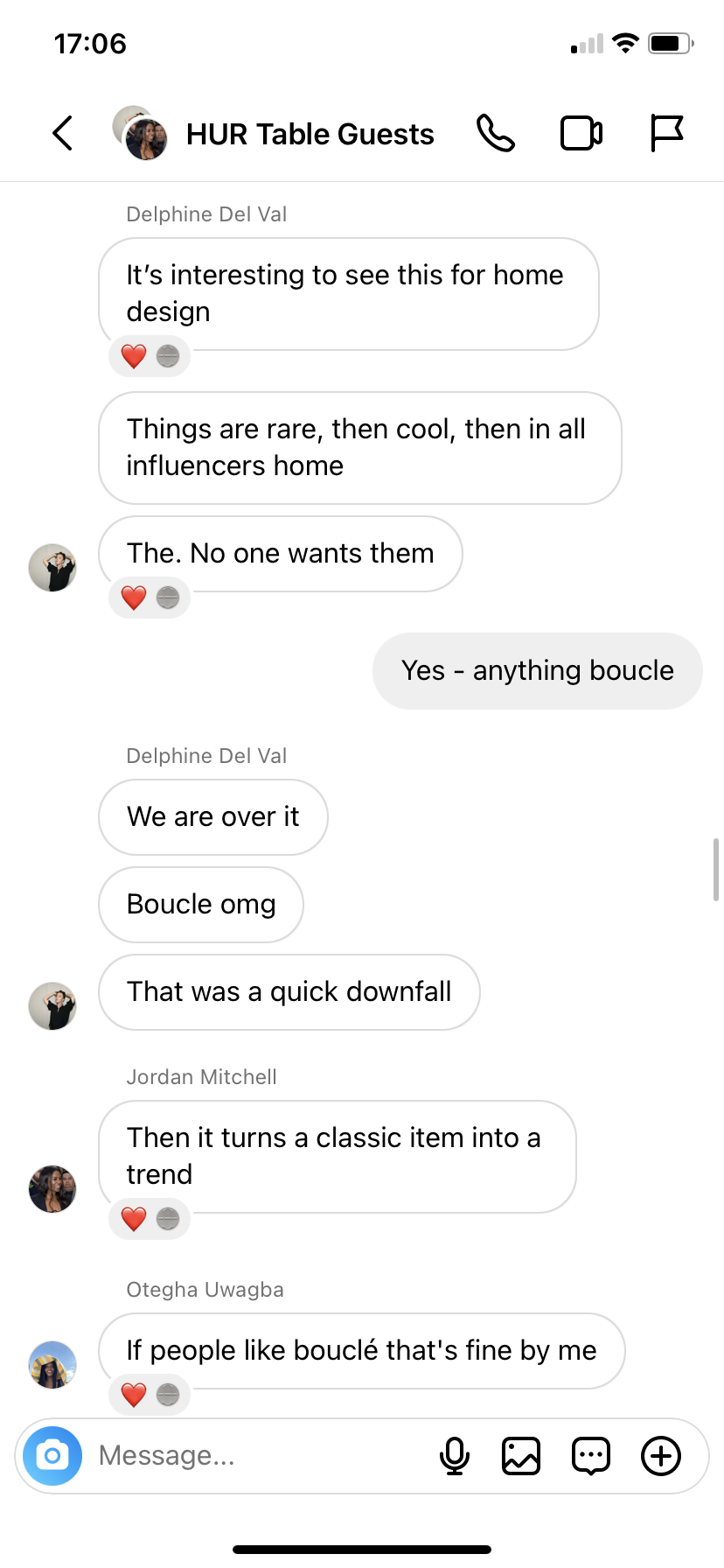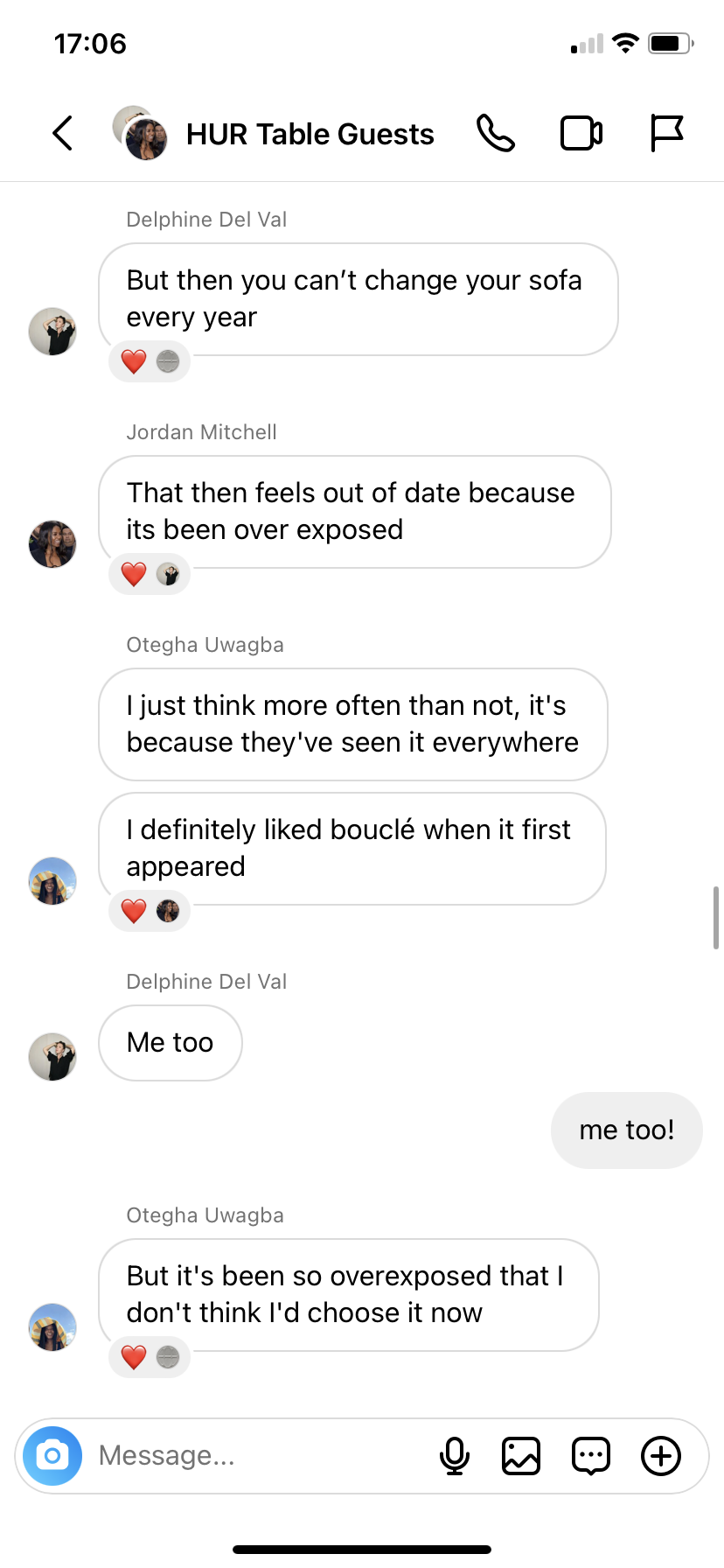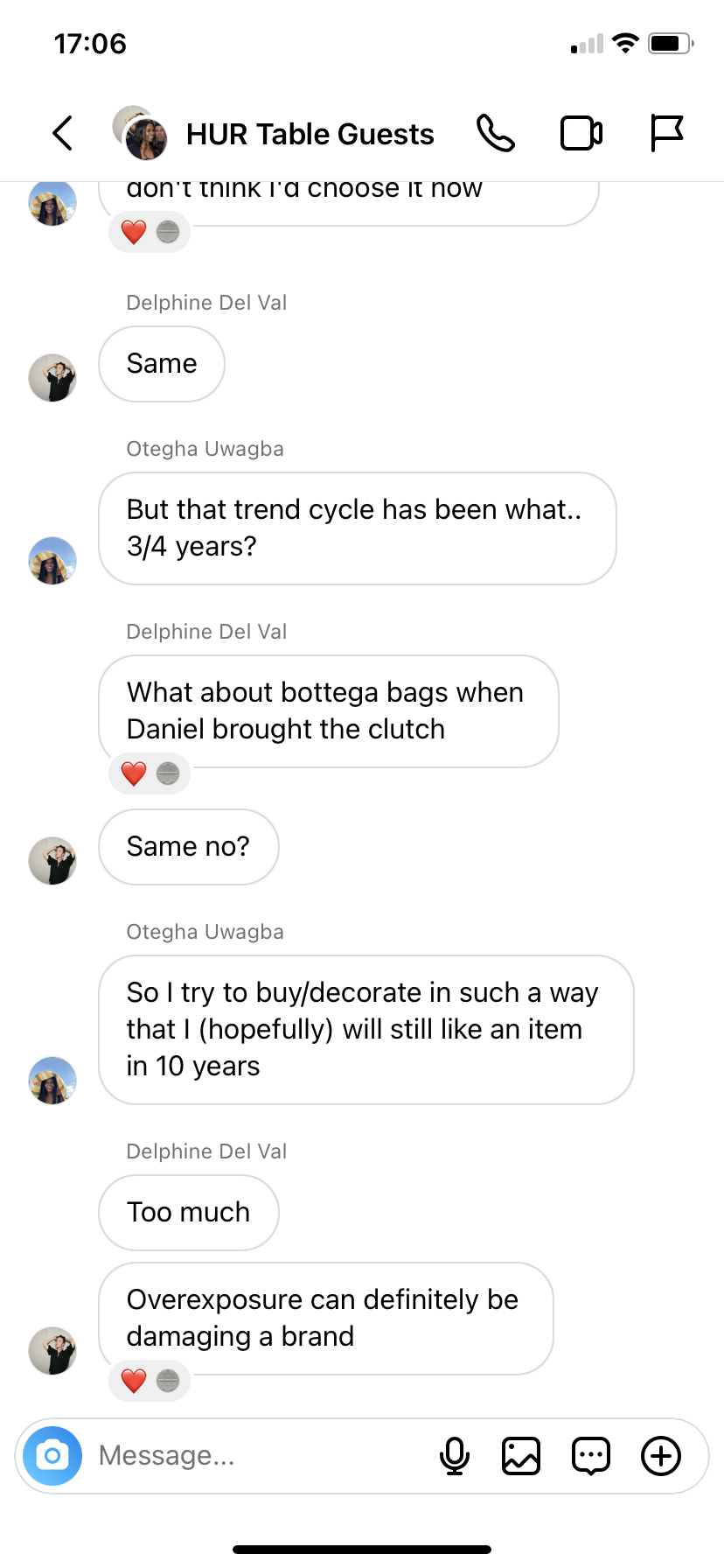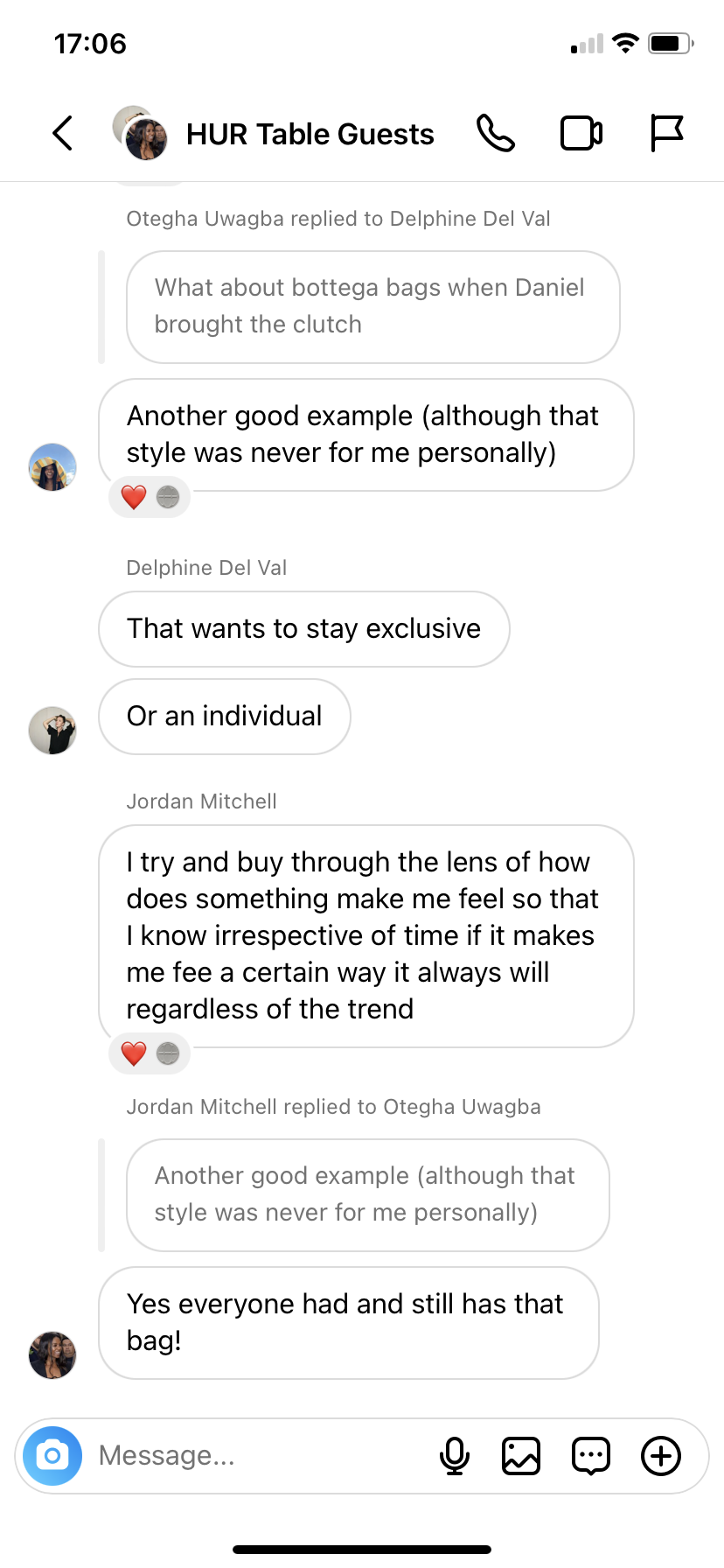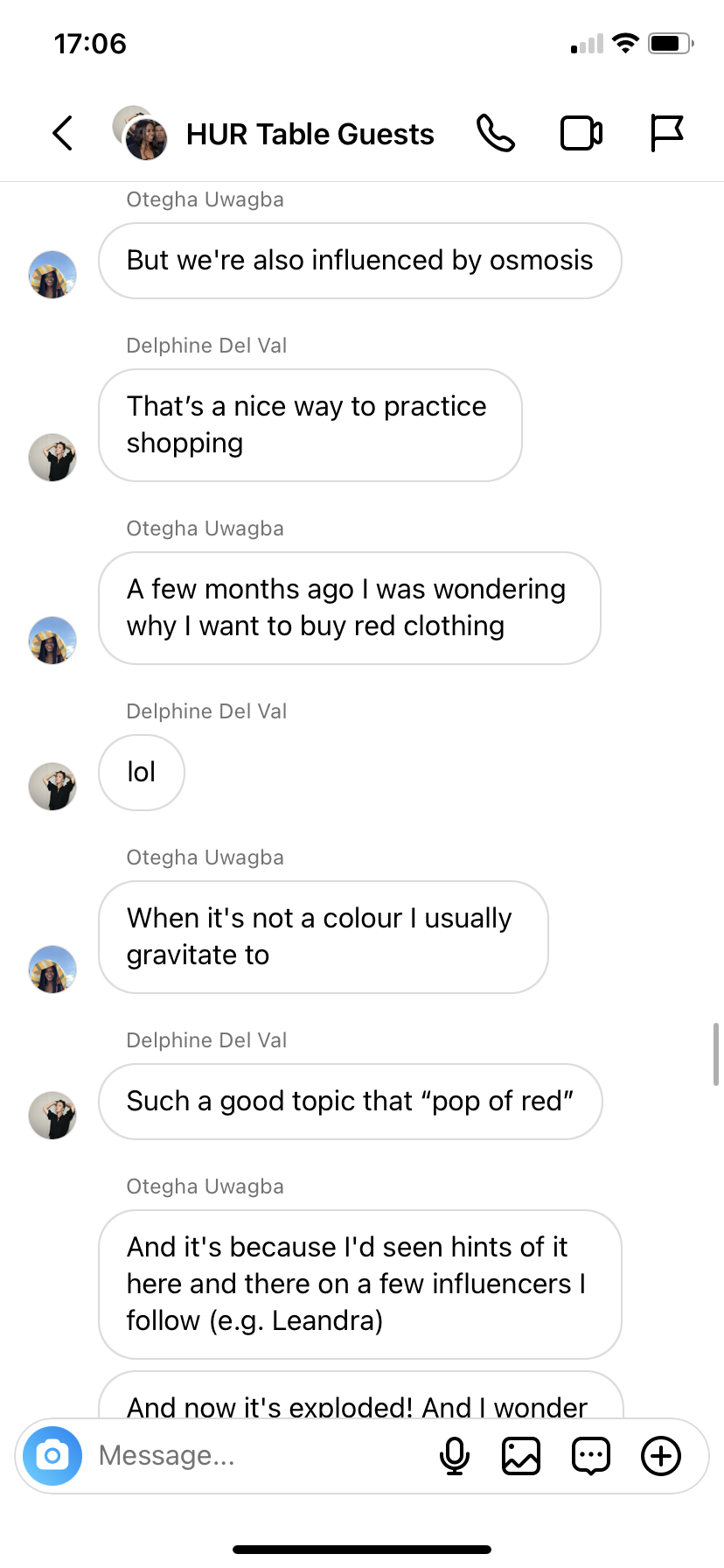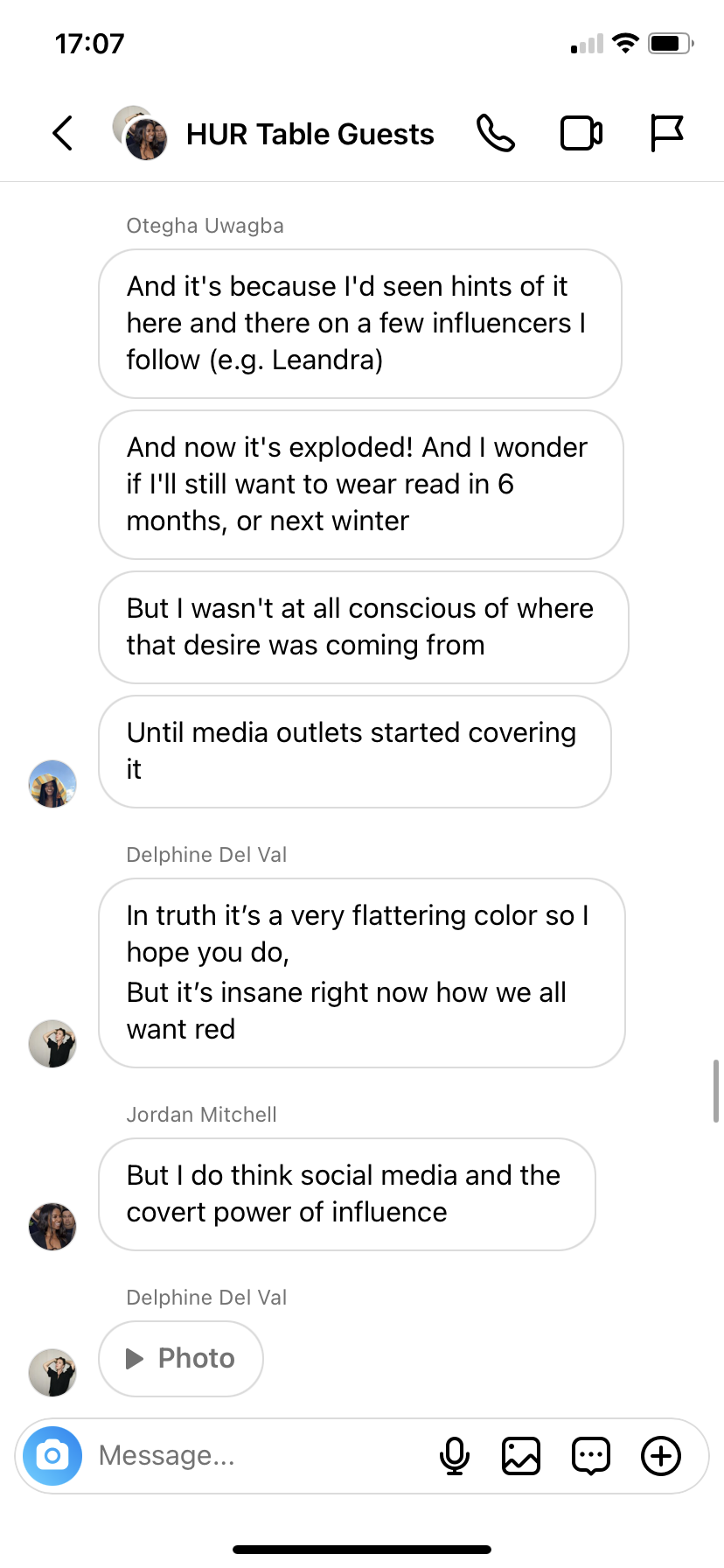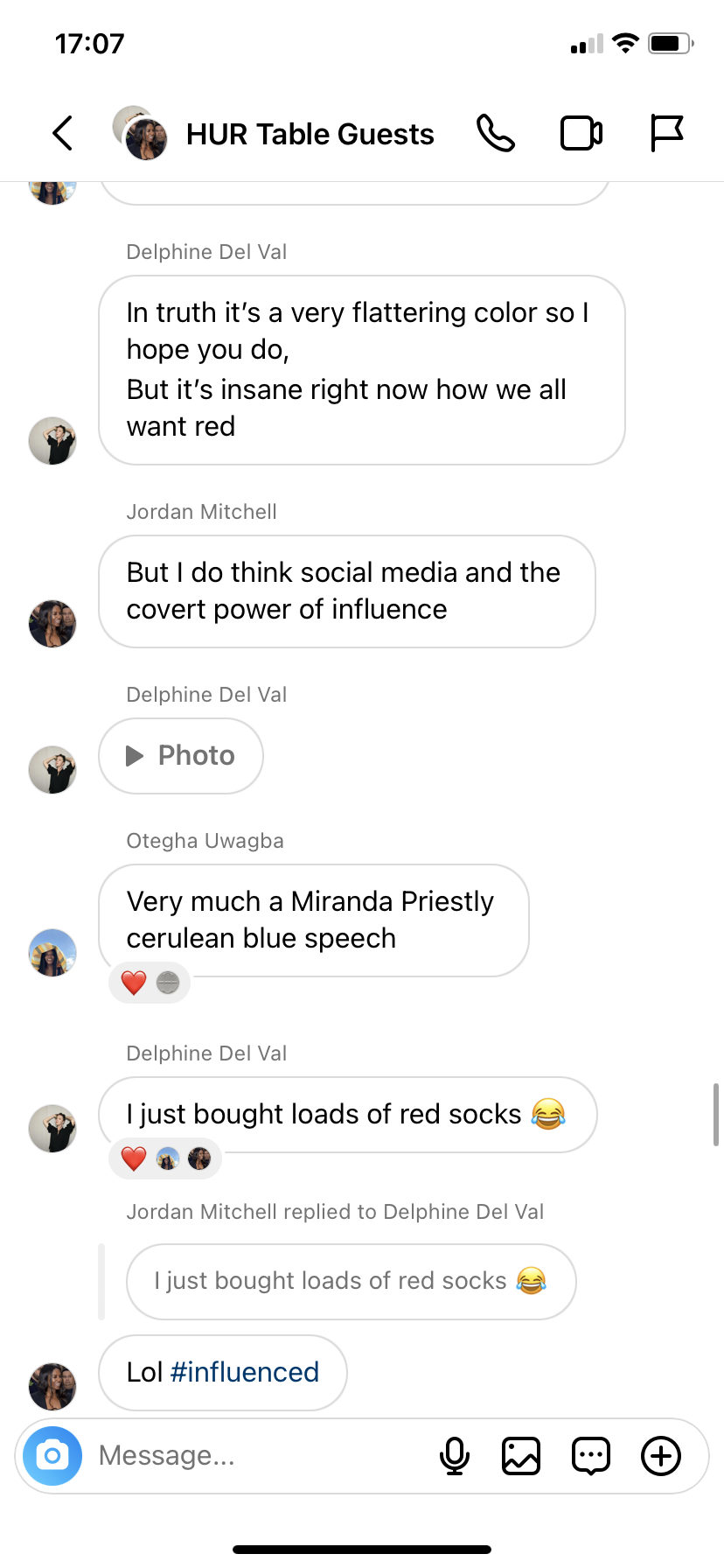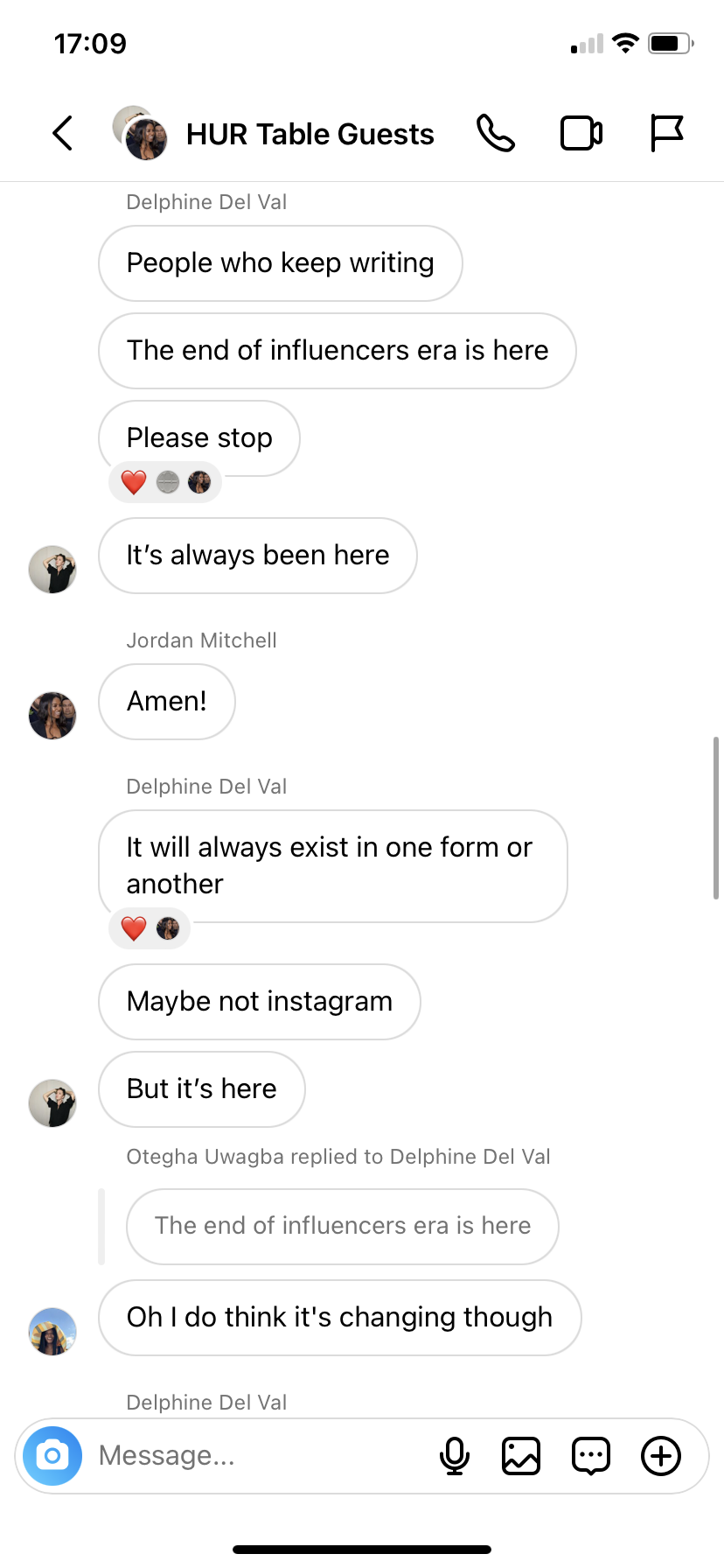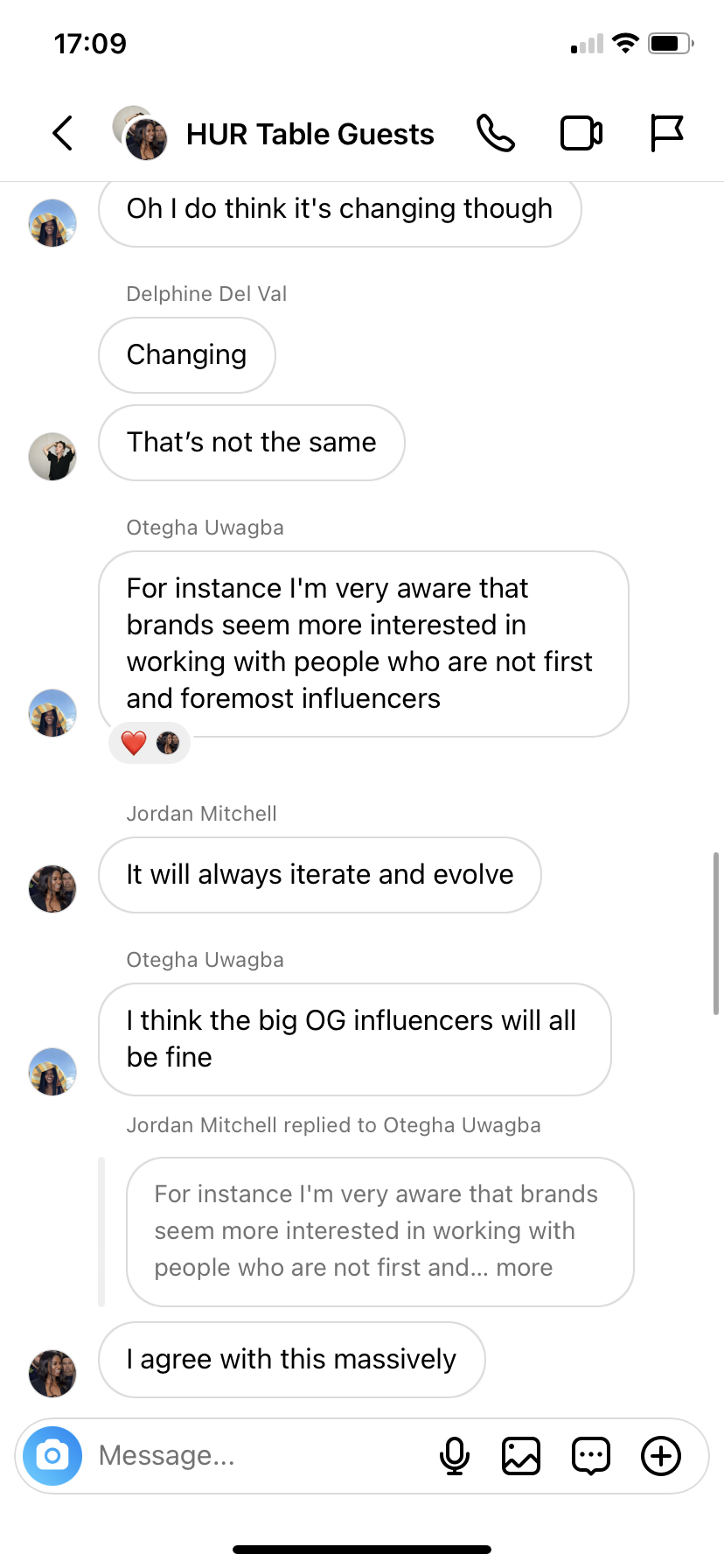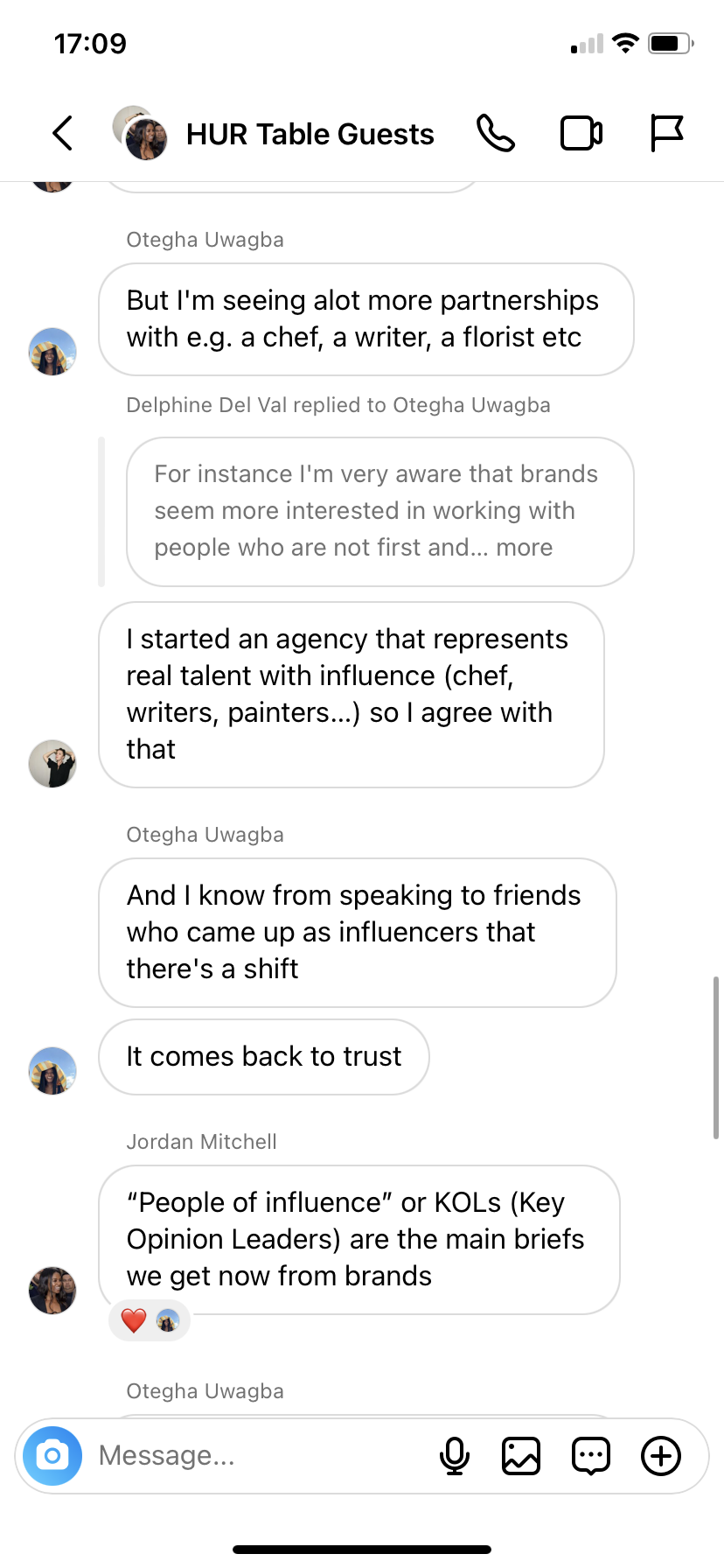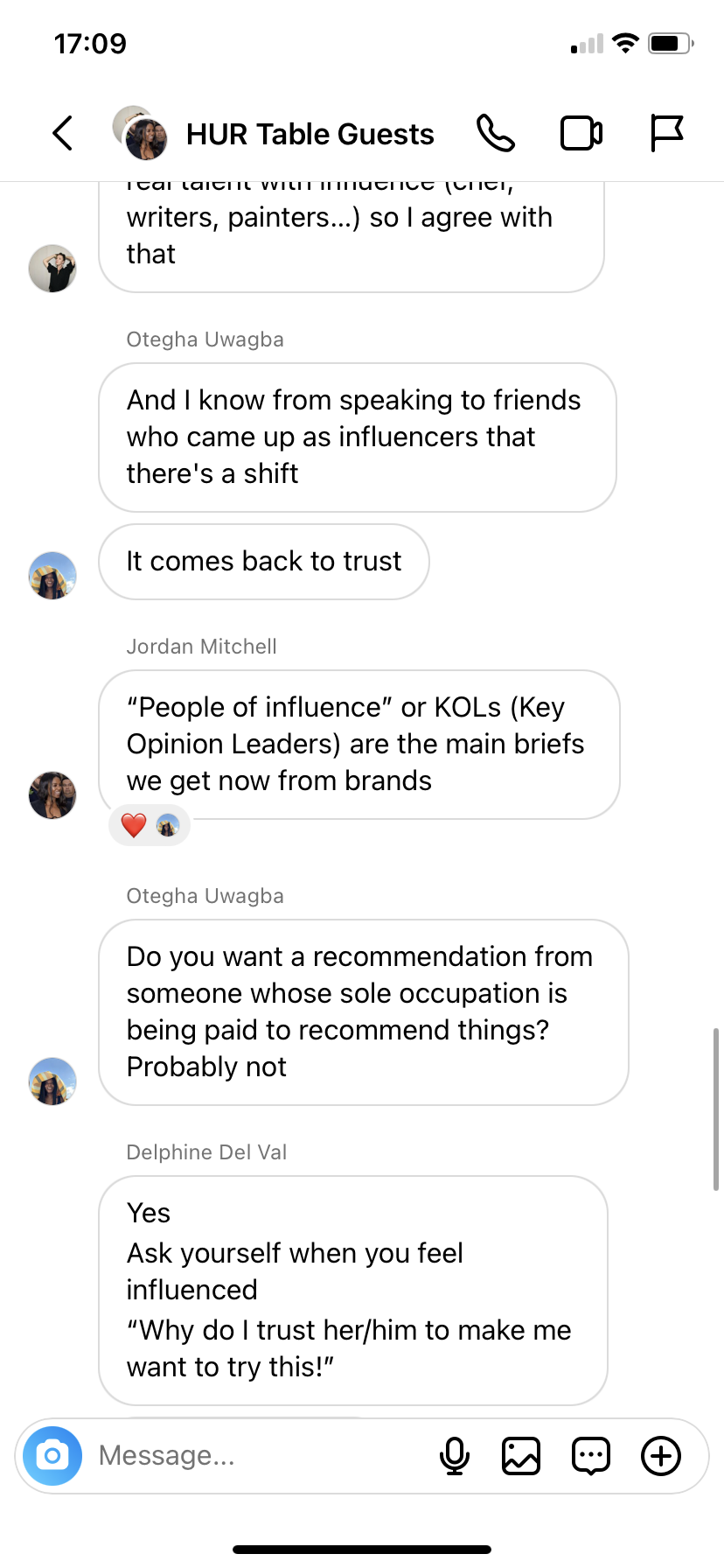Who Influences the Influencers?
Courtesy of HURS
Who Influences the Influencers?
With Jordan Mitchell, Otegha Uwagba and Delphine Del Val
By HURS team
Influencer culture is one of the many polarizing concepts of our time. While some have deep admiration for the influencer and even long to become one, others loathe them and some fiercely try to distance themselves from the title. Whatever feelings you might harbor, there’s no denying that influencers have changed the relationship between consumers and brands. Since 2019, the global influencer marketing industry has more than tripled, and is now valued at $21.1 billion. But the concept of influencers isn’t new – we’ve always looked to celebrities, cultural figures or people in our inner circle for inspiration and recommendations – social media has simply further amplified the phenomenon. It led to a new era of marketing, where it’s now the standard for brands to partner with influencers to connect with their audience on a more personal level. But as the influencer economy matures, brands and consumers are starting to re-evaluate their relationship with it all. Instead of narrowing in on those with the biggest follower count, many people are looking for authentic recommendations from people they’ve carefully selected. Shifting from traditional influencers to tastemakers of cultural figures; from chefs to photographers and designers, who also share their favorite restaurant, fashion brand or bottle of wine on their Instagram accounts. As technically everyone is an influencer in one way or another, the question is who truly has the power to influence? And what does it mean to be an influencer today?
JORDAN MITCHELL
Jordan Mitchel is the co-founder of Good Culture Inc. She has over two decades of experience building some of the world's most coveted talent and brands. Having honed her skills working for blue-chip corporate giants, Mitchell pivoted seamlessly into the entertainment, lifestyle and fashion realm, using her talent for ideation and strategic execution alongside global profile building. Mitchell has led communication and cultural strategies for brands including SKIMS, Good American, Pattern, Disney, Creed, Barbour and Flannels. As well as working with talent including Stefflon Don, Grace Carter, Charli Howard, Clara Amfo and Munya Chawawa, She is adept in road mapping long term strategy, brand extensions, partnerships and IP development for her clients. Additionally, she has cast campaigns and brokered partnerships for brands including Net a Porter, Christian Louboutin beauty, L’Oréal Paris, Belstaff, Herve Leger and beyond.
OTEGHA UWAGBA
Otegha Uwagba is a Sunday Times bestselling author, culture journalist and speaker. The London-based author and journalist has published three books, her writing has been published in the Gentlewoman, the Guardian and The Cut and she was selected for the Forbes 30 under 30 Media list. From 2016 until 2020 Uwagba founded and ran the celebrated community-based platform Women Who, which brought together women working across creative industries. She’s also an experienced speaker and moderator, and has worked with numerous organizations including the University of Oxford, Facebook and Tate Modern and has interviewed leading women including Fran Lebowitz, Naomie Harris and Monica Ali.
DELPHINE DEL VAL
Delphine Del Val was born and raised in Paris and has been living in New York City since 2005. After 15 years of representing fashion and lifestyle photographers, she founded her own talent agency in 2015, POOL Creatives, to utilize her experience and interests. POOL promotes an international mix of dynamic and talented women who are forces for positive influence and has offices in New York and Paris.
We asked the owner of a cultural strategy agency, a journalist and author and the founder of a talent agency for their take on the state of the influencer economy and what the new era of influence holds.




